June 2016 1st Edition
June 2016 1st Edition Joy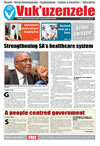
Translations
Jobs: The Department of Justice and Constitutional Development
Jobs: The Department of Justice and Constitutional Development lebangFamily Advocate: LP7-LP8 (2 posts) (This post is a re- advertisement; candidates who previously applied are encouraged to re-apply) Reference: 083/15/NC; Reference: 023/16/NC Centre: Office of the family Advocate: Kimberley
Package: R637 860 – R1 058 196 per annum. (Salary will be in accordance with OSD determination).
The successful candidate will be required to sign a performance agreement.
Requirements: An LLB Degree or recognized 4 year legal qualification; Admitted as an Advocate or qualifies to be admitted as an Advocate of the High Court; The right of appearance in the High Court of South Africa; At least 5 years appropriate post qualification, litigation experience; A valid driver’s licence; seTswana will be an added advantage.
Enquiries: Adv. P. Molokwane (053) 833 1019
Deputy Director: Technology Architecture (Contract appointment ending 30 September 2018) Reference: 16/119/ISM
Package: R612 822 – R721 878 per annum (All inclusive).
The successful candidate will be required to sign a performance agreement.
Requirements: A National Diploma/Degree in Information Systems/Technology/Computer science or equivalent qualification NQF 6; Three years experience within the information Systems, LAN and WAN environment, with specific focus on: Server Virtualization Storage Infrastructure IT networking, Database and user support; At least two years’ experience as a Technical/Technology/Solutions architect; Knowledge of TOGAF framework (Certification will be an added advantage); Experience working with Microsoft platforms and technologies (Certification as Microsoft professional ie. MCSE, MCITP, etc will be added advantage); Knowledge of EA practices, modeling EA Frameworks and Architecture disciplines; Knowledge of international standards; Knowledge of IT system design, software and product hardware evaluation; Experience of hardware and LAN/WAN environment.
Enquiries: Ms S Bezuidenhout (012) 315 1090
Assistant Director: Labour Relations Note: (This post is a re-advertisement; candidates who previously applied are encouraged to re-apply.) Reference: 16/65/FS
Salary: R311 784 – R376 626. The successful candidate will be required to sign a performance agreement.
Requirements: A 3 year Degree/ National Diploma in Labour Law / Labour Relations or equivalent relevant qualification; At least 3 years relevant experience in a supervisory / junior management position in the Labour Relations environment; A valid driver’s licence.
Enquiries: Ms NN Sithole (051) 407 1800
Maintenance Officer MR1 - MR5 (4 Posts) Contract period: Until 31 March 2017 (Note: These posts are a re-advertisement; candidates who previously applied are encouraged to re-apply). (Reference: 16/66/FS; Centre: Magistrate’s office Welkom, (2), Bethlehem (1) and Ladybrand (1)
Salary: R162 726 + 37% in lieu of benefits per annum (Salary will be in accordance with OSD determination). The successful candidate will be required to sign a performance agreement.
Requirements: An appropriate 4 year recognized legal qualification (Proc or LLB); Extensive knowledge of the maintenance system; Proficiency at least two official languages; Understanding of all services and procedures in the area of maintenance and other areas of family law; A valid driver’s licence.
Enquiries: Ms N Dywili (051) 407 1800
Note: Interested applicants may visit the following website: www.justice.gov.za (link is external)or www.dpsa.gov.za (link is external) or on the internet at www.gov.za (link is external) to view the full job specification of the above positions. Applications must be submitted on Form Z83, obtainable from any Public Service Department or on the internet at www.gov.za. A Z83 form & CV must be accompanied by original certified copies of qualifications and identity document and a driver’s licence where necessary. A SAQA evaluation report must accompany foreign qualifications. Applications that do not comply with the above mentioned requirements will not be considered. All shortlisted candidates for SMS posts will be subjected to a technical exercise that intends to test relevant technical elements of the job, the logistics of which will be communicated. Following the interview and technical exercise, the selection panel will recommend candidates to attend a generic managerial competency assessment (in compliance with the DPSA Directive on the implementation of competency based assessments). Candidate will complete a financial disclosure form and also be required to undergo a security clearance. If the candidate is applying for an OSD post, certificates of service must be attached to the CV.
The DOJ&CD is an equal opportunity employer. In the filling of vacant posts the objectives of section 195 (1) (i) of the Constitution of South Africa, 1996 (Act No: 108 of 1996), the Employment Equity imperatives as defined by the Employment Equity Act, 1998 (Act No: 55 of 1998) and relevant Human Resources policies of the Department will be taken into consideration. Reasonable accommodation shall be applied for People with Disabilities including where drivers licence is a requirement. Shortlisted candidates will be subjected to a personnel vetting process. Correspondence will be limited to short-listed candidates only. If you do not hear from us within 3 months of this advertisement, please accept that your application has been unsuccessful. The department reserves the right not to fill these positions. Women and people with disabilities are encouraged to apply and preference will be given to the EE Target.
Closing date is 6 June 2016
Strengthening SA’s healthcare system
Strengthening SA’s healthcare system JoyGovernment has announced more plans that are aimed at increasing the fight against HIV and Aids.
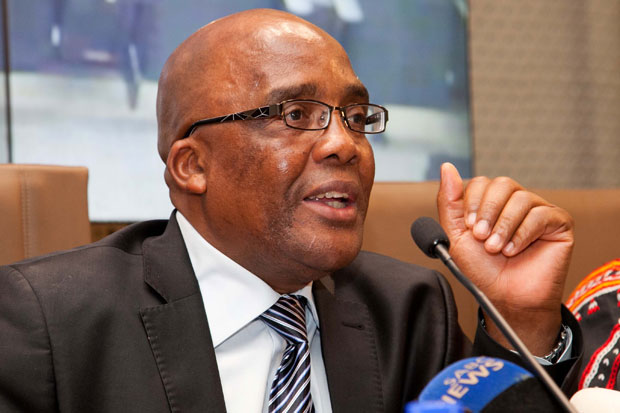 The plans are in addition to the HIV and Aids programme that government is already implementing.
The plans are in addition to the HIV and Aids programme that government is already implementing.
The programme, which started with the launch of the world’s biggest testing campaign in 2010 - dubbed the HIV Counselling and Testing Campaign (HCT) - saw 18 million South Africans test for HIV and Aids within a period of 18 months.
Today, 10 million South Africans get tested annually.
As of September this year, all HIV positive patients will receive ARV treatment irrespective of their CD4 count.
“In September this year, we will remove CD4 count as an eligibility criteria for ARV treatment. We will move to test and treat in line with the new guidelines released by the World Health Organisation in December last year.
“In addition, we will provide Pre Exposure Prophylaxis (PrEP) to sex workers in 10 sex worker programmes from June this year and will start by learning lessons from demonstration projects on how best to provide PrEP to them before offering this intervention to all vulnerable young women,” he said when he tabled the department’s Budget Vote speech in Parliament recently.
This month government will launch a three-year campaign aimed at reducing infections in young women and increasing economic opportunities to protect them from sugar daddies.
“We will launch a three-year campaign focusing on girls and young women, in the 15-24 year age group, and the men who are infecting and impregnating them,” he said.
The campaign will focus on five key areas:
- Decreasing infections in girls and young women
- Decreasing teenage pregnancy
- Decreasing sexual and gender-based violence
- Keeping girls in school until matric
- Increasing economic opportunities for young women to try and wean them away from sugar daddies.
This in line with the department’s aim of meeting the National Development Plan’s objective of reducing the burden of disease, to have life expectancy of 70 years by 2030 and to have an Aids-free generation of under 20s.
“This campaign must involve the whole of government and society and led by young people.”
The campaign will cost R3 billion and will be made possible by funding from PEPFAR, Global Fund, the German Development Agency and government departments.
Aids deaths in South Africa declined from 320 000 in 2010 to 140 000 in 2014, and mother-to-child transmission of HIV reduced from 70 000 babies in 2004 to less than 7 000 in 2015.
“As you can see, these are remarkable successes. But you will notice that the successes are largely due to Biomedical Interventions.
“When it comes to the area of socio-behavioural interventions, it is an uphill battle – especially with 15-24-year-old girls and young women. In this age group, there are 5 000 new infections per week in 14 Southern and Eastern African countries – but half of these occur in South Africa alone,” the Minister said.
The new programmes will cost the department an additional R1 billion in this year’s budget, which the National Treasury has already made available despite the harsh economic climate.
TB remains the biggest killer
Meanwhile, the Minister said while HIV and Aids remain a concern, Tuberculosis (TB) is the disease that is killing people.
He said although TB deaths have declined from 70 000 in 2009 to less than 40 000 in 2014, it still remains the biggest killer of all infectious diseases in our country and globally.
“Since the screening campaign was launched on World TB Day on 24 March 2015 by Deputy President Cyril Ramaphosa, I am happy to announce that we have successfully screened thousands of people in the vulnerable sectors of correctional services, mining and peri-mining communities.
“This year we are focusing on eight metros with the aim to screen 1.3 million people,” he said.
The department would receive a R4.2 billion grant from the Global Fund to support government’s HIV and TB responses.
A people centred government
A people centred government JoySouth Africans will soon experience even better interaction with government.
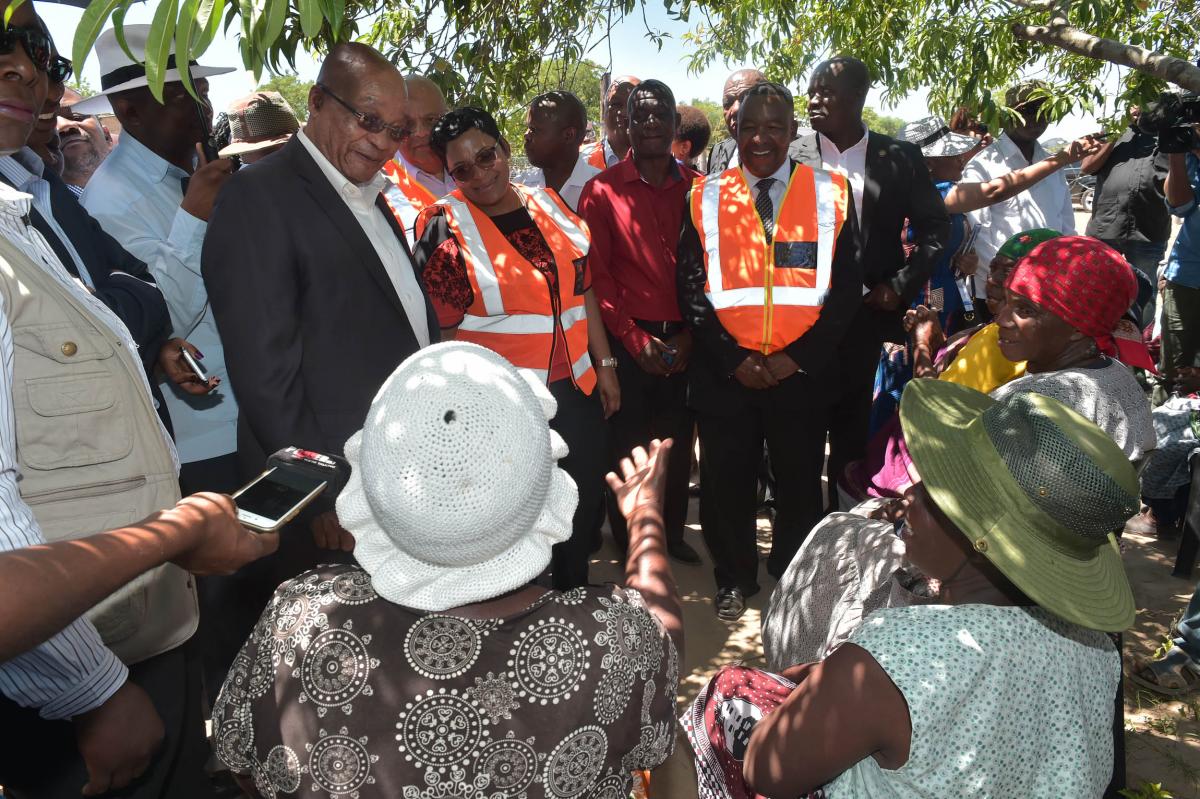 The Government Communication and Information System (GCIS) will spend over R300 million on programmes that will improve communication between the state and citizens, said Communications Minister Faith Muthambi when she tabled the department’s Budget Vote.
The Government Communication and Information System (GCIS) will spend over R300 million on programmes that will improve communication between the state and citizens, said Communications Minister Faith Muthambi when she tabled the department’s Budget Vote.
The National Development Plan emphasises the need to unite South Africans around a common goal – ensuring that citizens are active in their own development and build a capable and developmental state.
“This partnership is as a result of our community outreach programme in far flung areas of our country.
“To support these outcomes, the GCIS will continue to implement programmes aimed at facilitating two-way communication between government and its citizens,” she said.
The Minister explained that the partnerships would enable citizens to access information about government policies, plans, programmes and activities to promote government accountability and ensure that citizens can actively participate in government initiatives.
“In order to fulfil this responsibility, a budget of R382.1 million has been allocated to the GCIS,” she added.
Government throws its weight behind community radio
The Minister said supporting community radio was a priority for government and urged the private sector to do the same.
“The Community Radio Support Strategy has been finalised and is being implemented.
“I am pleased to inform the house that in the 2015/16 financial year the GCIS spent over R26 million on community radio advertising.
“During the 2016/17 financial year, five licensed community radio stations will be provided with broadcasting infrastructure,” she said.
The Minister added that work was at an advanced stage as far as finalising the broadcasting policy review process was concerned.
She said some of the overarching and specific objectives of the review are to:
- Create a level playing field for emerging audio-visual media services.
- Protect and empower consumers (audiences), in particular to guarantee key societal values for the protection of minors and human dignity and promote the rights of visually and or hearing impaired persons.
- Promote South African content to support social cohesion and nation building and safeguard media diversity, pluralism, freedom of expression and information.
“The department’s community radio programme is working! The Greater Giyani Municipality partnered with the Giyani Community Radio Station and provided them with premises and advertising support to ensure the sustainability of the station.
“We call upon other municipalities to emulate this gesture, without compromising the editorial independence of the stations,” she said.
The Minister added that the department would also continue to publish and distribute the fortnightly Vuk’uzenzele newspaper.
She said in the 2016/17 financial year, the department has allocated R25.8 million to produce and distribute 18.7 million copies per year in all 11 official languages.
“We will continue to encourage government departments to place recruitment advertisements in Vuk’uzenzele.
“I would like to thank departments that are using this platform to advertise their vacancies and I also encourage others to do so too,” she said.
New App to track medicine stock shortages
New App to track medicine stock shortages JoyOne of the biggest challenges that compounds the burden of disease in the country is running out of drugs – a phenomenon called  drug-stock-outs.
drug-stock-outs.
The Department of Health has been battling with this problem for some time now.
Government has now implemented a stock visibility system known as SVS in primary healthcare clinics.
“This is a mobile app that healthcare professionals use to scan medicine barcodes and enter the stock levels for ARVs, anti-TB medication and vaccines.
“This information is in real-time and is available at any geographic location, via the web,” he said.
To date six provinces have the SVS covering 1 900 or 60 percent of the country’s clinics.
He said plans were underway to have 100 percent of all primary healthcare clinics reporting medicine availability into a national medicine surveillance centre within the next three months.
Central Chronic Medicine Dispensing and Distribution Programme.
The Central Chronic Medicine Dispensing Programme makes it possible for stable patients to collect their medication from a pick-up point near their home or work – saving both time and money.
“It also reduces waiting times at clinics by reducing volumes of patients who have to come to a clinic.”
According to the department there approximately 400 000 patients have been enrolled into the programme, accessing their medicines from over
1 000 pick-up points, including adherence clubs, occupational health sites, general practitioners and private pharmacies.
The department was planning to reach 800 000 patients by the end of this financial year.
“We also need to ensure the rational use of medicines. To this end, we have standard treatment guidelines (STGs).
“Last year we launched an app to disseminate these guidelines, starting with the primary healthcare STGs.
“This application is freely available from all app stores and also works offline to assist health professionals in remote areas with poor or no connectivity,” he said.
The app helps decision-making at the point-of-care. It also has a function to report any stock-outs of essential medicines. Any doctor in any health facility, on prescribing any essential medicine and told that it is out of stock, can press a button which will report directly to Pretoria.
“The doctor does not have to struggle with the management of the hospital or clinic which would have reported the low stock if there was good management in that facility.
“The application has already been downloaded 15 000 times in South Africa,” he said.
Look out for the new and improved Vuk’uzenzele
Look out for the new and improved Vuk’uzenzele Joy
Moving our youth forward
Moving our youth forward JoyThe second stanza of our National Anthem opens with the words “Morena boloka sechaba sa heso (Lord, we ask you to protect our nation), which are particularly meaningful as we observe Youth Month 2016 this June.
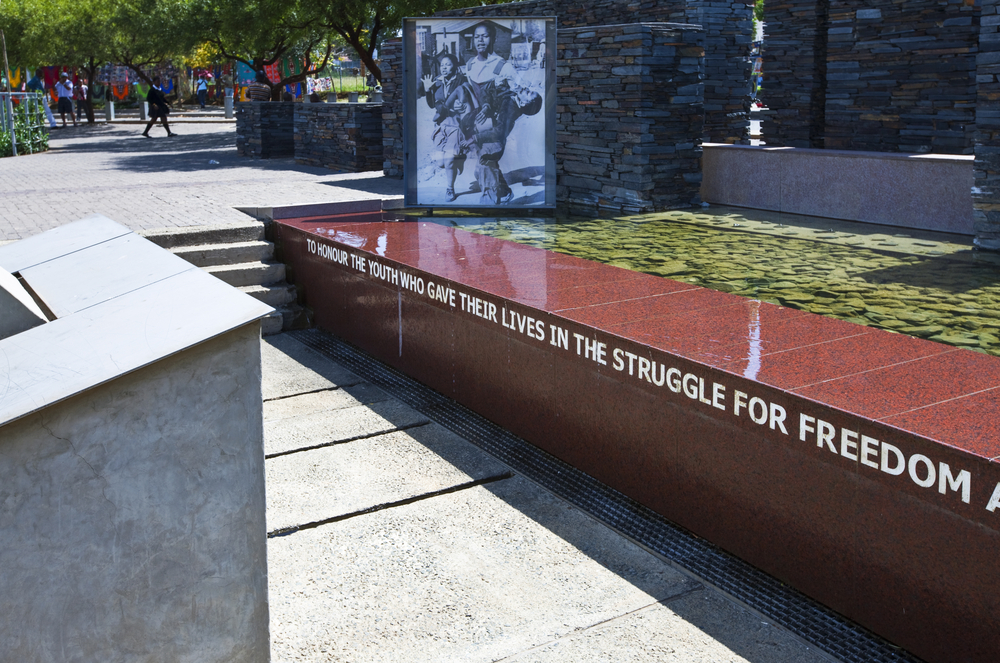 Morena boloka sechaba sa heso were the words on the lips of learners outside Phefeni Junior Secondary School on Wednesday, June 16 1976, when police provoked young people resisting the imposition of Afrikaans as a medium of classroom instruction.
Morena boloka sechaba sa heso were the words on the lips of learners outside Phefeni Junior Secondary School on Wednesday, June 16 1976, when police provoked young people resisting the imposition of Afrikaans as a medium of classroom instruction.
In turn, the police fired teargas and live ammunition, fatally wounding 15-year-old Hastings Ndlovu and 13-year-old Hector Pieterson in the process.
The death of Hastings Ndlovu is not as familiar as that of Hector Pieterson, due to media not being on the scene to capture Hastings Ndlovu’s death in the way that Hector Pieterson’s was immortalised by the photographer Sam Nzima.
The two teenagers died within a short while of each other at the start of what we commemorate today as the Soweto Uprising; an uprising that not only exposed the international community to the brutality of the apartheid regime, but inspired renewed resistance among young people all over our country.
The image of Hector Pieterson’s collapse from his bullet wound live on in an iconic photograph showing a then 18-year-old Mbuyisa Makhubo carrying the dying Hector in his arms, with Hector’s shocked sister, Antoinette (17) running alongside towards the photographer’s car.
Our country has honoured the bravery and resilience of the youth of 1976 by declaring June 16 as Youth Day and adopting June as a month during which we focus South Africans’ attention on the progress and challenges experienced by the youth of our nation.
Our respect for the sacrifices made by young people 40 years ago in 1976 and in the 18 years that led to the democratic transition in 1994 is also reflected in the R23 million Hector Pieterson Memorial in Soweto which is now a major tourist attraction.
Four decades after the Soweto Uprising, the democratic South Africa of 2016 is committed to moving our youth forward in line with our National Development Plan which views our young people – and their education and future wellbeing – as our most important national asset.
The building of new schools and universities; the diversity of graduates emerging from our institutions of higher education and training; the dynamic contribution of young people in our workplaces and the vibrancy of our popular culture shows us how our young people have progressed under democracy.
At the same time, though, we feel the pain of young people who are unemployed, regardless of their educational qualifications; we are pained also by the fact that HIV continues to affect young people and particularly young women in their teens and early 20s.
And we are disturbed that young people are concerned more with what they have than who they are as persons, and are falling prey to a culture of “blessers” and “blessees” who exchange intimate favours for material goods and cash.
We are even more concerned as a nation when students raise legitimate demands – such as reductions in study fees – but pursue those legitimate demands with illegal actions, such as burning educational facilities that government built using taxes paid by learners’ parents.
We are concerned also when communities that have issues to raise with government or with the private sector affect the future of our children by wrecking schools and health facilities that cost billions of rands to restore, while young people lose out on education.
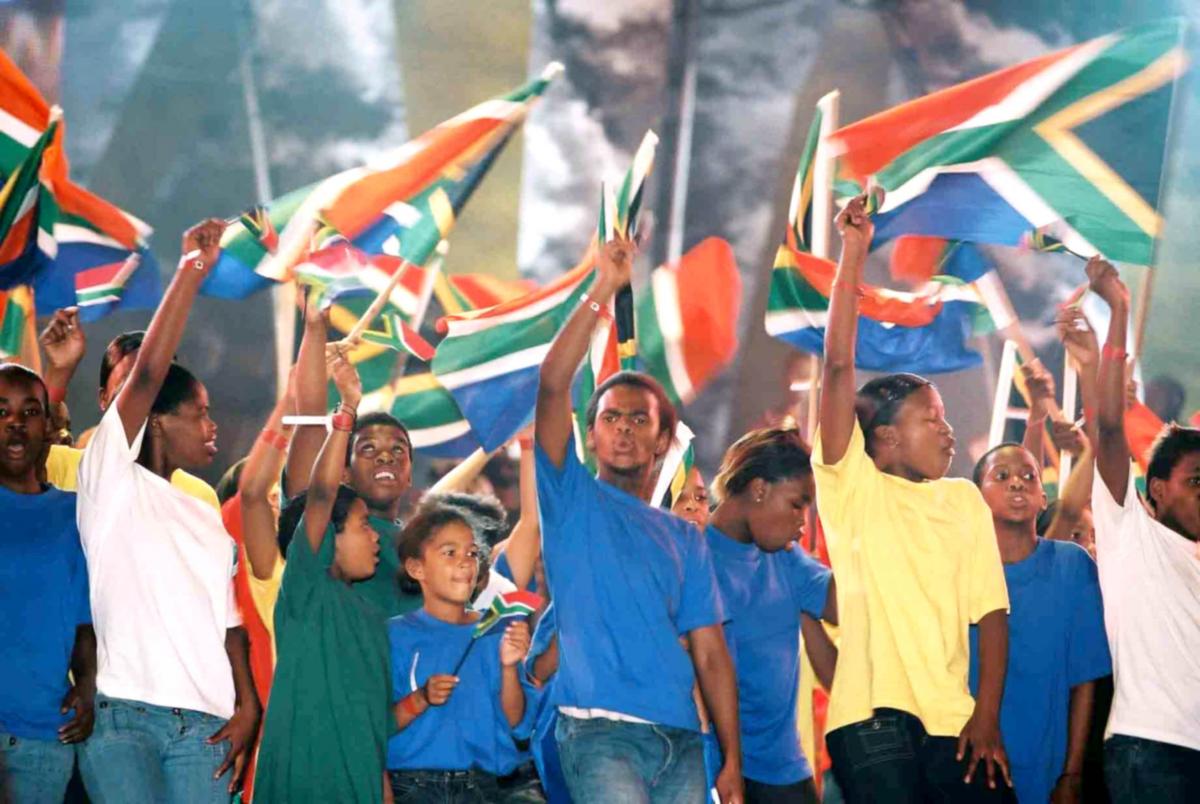 Every month or year lost in a young person’s education is another month or year that such a person is carried by their family, community and – inevitably – the state.
Every month or year lost in a young person’s education is another month or year that such a person is carried by their family, community and – inevitably – the state.
In our current economic conditions, especially, we cannot afford to ruin opportunities for young people, and we cannot have young people squander the opportunities that are presented to them from the cradle to the grave in our society.
When Hector Pieterson collapsed on the corner of Moema and Vilakazi streets, he paid the price for challenging an illegitimate regime whose care and concern was reserved only for white South Africans.
Fourty years later, young people in South Africa are part of a caring society where government and communities work together to create a better future for all of us.
One example of such a partnership is the Congress of South African Students’ Learn Without Fear programme, which is aimed at highlighting safety issues in our schools.
The programme addresses such issues as learners carrying weapons to school, bullying and the use of alcohol and drugs.
Born out of the spirit of resistance of 1976, COSAS provides an example in 2016 of how young people ought to take an active interest in improving their lives.
Young people are not meant to be passive observers in our society; instead, they must champion their own future by making the most responsible choices in their lives and being active partners in building a better South Africa for the future.
If all of us did this, we will ensure that when we sing Morena boloka sechaba sa heso, South Africa will indeed be a country that is worthy of divine protection and abundant prosperity.
Four decades after the Soweto Uprising, the democratic South Africa of 2016 is committed to moving our youth forward in line with our National Development Plan which views our young people – and their education and future wellbeing – as our most important national asset.
600 households get electricity
600 households get electricity JoyLocal government
The life of Nonjabulo Khumalo (36) and her six siblings will never be the same after her home was connected to the electricity grid for the first time. Khumalo, who lives in Nhlazatshe in Ulundi, north of KwaZulu-Natal, was one of 600 households to receive electricity.
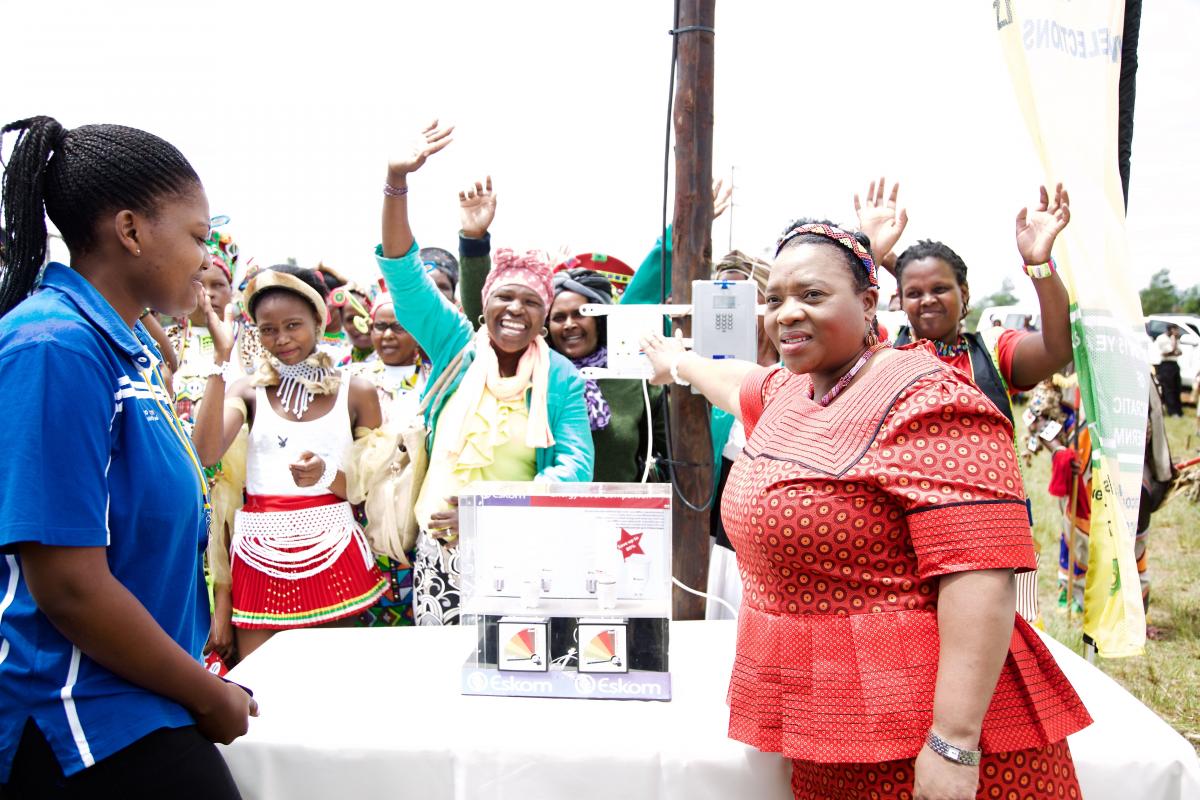 According to Khumalo, the installation of electricity has changed her life and saved her family a lot of money, which was previously spent on paraffin and candles for lights and cooking.
According to Khumalo, the installation of electricity has changed her life and saved her family a lot of money, which was previously spent on paraffin and candles for lights and cooking.
“My siblings are now able to study at night and whenever they are given homework that requires them to watch certain programmes on television, they are now able to do this. This was not possible in the past,” said an excited Khumalo.
According to KwaZulu-Natal Cooperative Governance and Traditional Affairs MEC Nomusa Dube-Ncube, the purpose of the project was to provide household electricity to the community of Nhlazatshe Ward 13.
MEC Dube-Ncube said the ongoing effort to connect rural communities to the national electricity grid is a key priority for the government, as access to electricity is pivotal for communities that are now enjoying the rewards of a democratic government.
“We are really excited about the transformation we are seeing in our communities, as more and more people are getting connected to the grid. This area of Ulundi has an electricity backlog of just over 8 000 and we are glad to see that this project has alleviated much of the backlog,” said MEC Dube-Ncube.
It cost government R12 million for the project to be implemented.
“Rural communities should always be prioritised and we are glad to see Eskom working with us to electrify households that are still waiting to be connected to the grid for the first time,” said MEC Dube-Ncube.
The municipal electrification programme was part of the Expanded Public Works Programme (EPWP) initiative and all projects are required to employ local labour to develop skills locally.
The Nhlazatshe Electrification Programme created at least 20 local jobs.
MEC Dube-Ncube said that part of her department’s mandate is to support municipalities in the implementation of infrastructure programmes, such as water, sanitation and energy. These mandates are aimed at achieving universal access to all services to improve the quality of life of the people in the province of KwaZulu-Natal.
The MEC also donated various electric appliances and groceries to some families.
She held an interactive session with community members during her visit, to resolve some electricity grievances and other social challenges.
The City of Ekurhuleni is improving lives
The City of Ekurhuleni is improving lives JoyLocal government
The City of Ekurhuleni has made significant progress and has delivered on its promises to the people.
This was evident in its State of the City Address, where employment was at the top of the agenda.
Ekurhuleni Mayor Mondli Gungubele reflected on the challenges faced and progress made so far, and tackled the issue of unemployment within his region, assuring residents that government was actively fighting the scourge and was creating job opportunities.
“In our endeavour to create employment and reduce poverty, we have created no less than 200 000 job opportunities in the past five years, and through public sector projects, we have created 52 856 opportunities via the Expanded Public Works Programme and the Community Work Programme.”
He said the broader economic sectors have enabled the creation of an additional 148 589 jobs across the regional economy during the same period.
“Moreover, the city has placed 5 000 young people in various companies on two-year contracts, to not only tackle the broader issue of unemployment but also to expose them to the working environment to make them more employable in future.”
Growing the township economy
In line with creating job opportunities in the east of Johannesburg, the City of Ekurhuleni is actively revitalising its township economies to ensure that business thrives in the townships.
To achieve this, five new township economic hubs have been established including Etwatwa, Vosloorus, Duduza and KwaThema, which will cost R90 million a year.
Numerous projects worth millions of rands have also been awarded to emerging contractors in the region, with the vision of creating employment for locals.
A total of 128 small, medium and micro enterprises have received a cash injection of R6 million which will assist in boosting their businesses.
These are just some of the projects undertaken by the city and form part of the R2.9 billion ring-fenced for the Mintirho ya Vulavula Community Empowerment Programme.
Decent houses
Mayor Gungubele highlighted the importance of the ensuring people have decent shelter.
“In pursuit of providing decent housing to all of our people, 112 781 houses were delivered between 1994 and 2006.
“However, 14 781 of these were built between 2011 and 2016 and in the current financial year, with funding provided by the Provincial Government, we are already building 471 houses out of a projected 526.
“Further to this, we have serviced nearly 124 758 stands in the same period. Full-title and ownership of land was given to 124 758 people through the establishment of 112 residential townships and a further 32 544 households have received title deeds,” said Mayor Gungubele.
He added that his office was working hard to do away with informal settlements and backyard dwellings by providing people with adequate housing.
Increasing access to electricity
Mayor Gungubele highlighted the City has electrified more than 27 000 subsidised households. It has also installed an additional 6 972 streetlights since 2011.
A further R1.6 billion has been invested in upgrading and refurbishing the city’s electricity network.
“As the country’s energy grid continues to operate on a tight leash, our efforts to respond to this include producing 300 megawatts of renewable energy by 2020.
“To achieve this, the city has initiated an Independent Power Producer Programme which will make it possible for us to procure energy from various primary renewable energy sources,” said Mayor Gungubele.
Water infrastructure upgrades for Lephalale
Water infrastructure upgrades for Lephalale JoyLocal government
In an effort to ensure that residents have access to consistent and quality water supply, the Lephalale Local Municipality (LLM) is upgrading its water infrastructure by
replacing the old asbestos pipes.
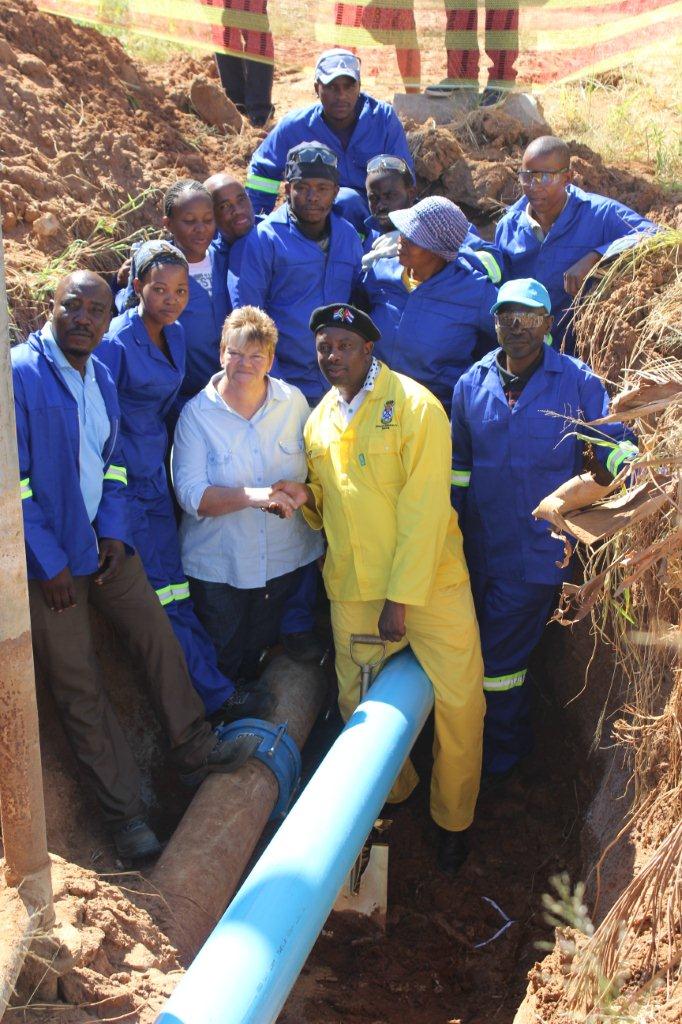 The upgrade of the asbestos pipes is being done in line with the municipality’s goal of delivering comprehensive water services to communities and to curb water losses through burst pipes and leaks in the area.
The upgrade of the asbestos pipes is being done in line with the municipality’s goal of delivering comprehensive water services to communities and to curb water losses through burst pipes and leaks in the area.
The upgrade is expected to benefit over 150 000 people within the muncipality.
This is in line with government’s efforts to save water. Recently, Minister of Water and Sanitation Nomvula Mokonyane said the country loses R7 billion per year as a result of water leaks.
To help minimise the impact, her department will spend R3 billion training 15 000 young people to become artisans, plumbers, and water agents to fix leaking taps and pipes in their respective communities as part of promoting water conservation.
The programme is expected to run over a five-year period to ensure that South Africa’s water and sanitation sector is equipped with a competent number of skills and capacity to minimise water losses in the country.
Executive Mayor of LLM Jack Maeko said the infrastructure was important for meeting the needs of the municipality’s growing population.
“This project is extremely important as it deals with the basic needs of our people. Existing water supply systems should be refurbished and/or upgraded in a manner that serves the growing populations of Onverwacht, Lephalale town, Marapong and rural communities.”
He added that upgrading the infrastructure would also play a positive role in the growth of Lephalale town on a long- and short-term basis.
“The present water supply systems and the capacity of virtually all infrastructure's needs to be increased to at least double the present capacity in many instances to provide for growth in the short- and long-term,” he said.
The upgrade is being done in partnership with the Department of Water and Sanitation and in phases over a five-month period that started in April and is expected to end in September 2016.
The project is valued at just over R10 million. The municipality contributed R3 million and the Department of Water and Sanitation will contribute R7 million to the project.
The implementation of the project will enable LLM to curb water losses from the existing 119 km of AC pipes in Lephalale that include a 60 km section that needs immediate attention.
The existing pipes range from 100mm to 300mm in diameter at an approximate depth of 1m to 2m below the ground.
Lephalale residents are encouraged to report water problems to the Municipality on 014 763 2193 or 082 770 0085
Big plans to grow eThekwini
Big plans to grow eThekwini JoyLocal government
South Africans are reaping the rewards of government’s massive investment in infrastructure through new schools, access to water, electricity connections and jobs, among others.
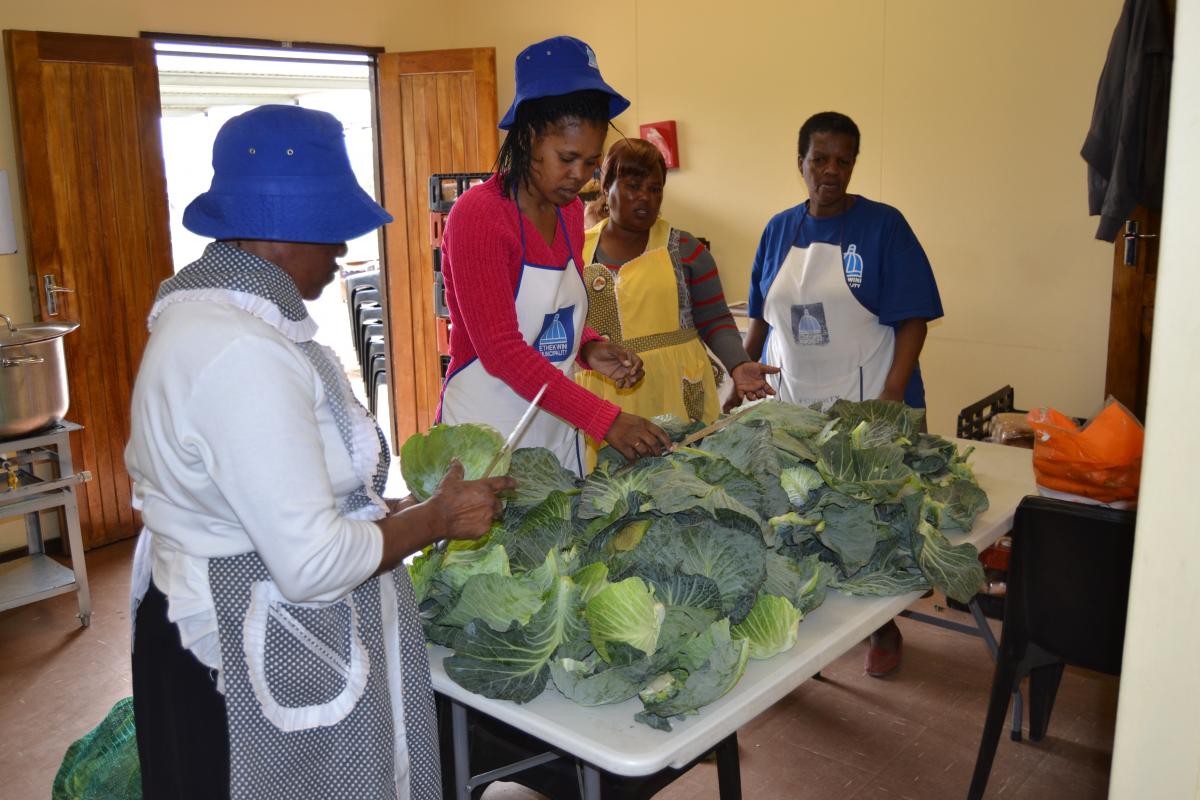 Job creation, skills development, local economic development and housing are at the top of the agenda for the eThekwini Municipality, said Executive Mayor James Nxumalo during his State of the City Address recently.
Job creation, skills development, local economic development and housing are at the top of the agenda for the eThekwini Municipality, said Executive Mayor James Nxumalo during his State of the City Address recently.
Mayor Nxumalo said the City’s R41.6 billion budget for the 2016/17 financial year would address infrastructure challenges, unemployment, skills development and economic growth.
“A significant portion of this budget will go towards developing the local economy. We have set aside R28 million to develop Hammarsdale township into an economic hub,” he added.
Other townships earmarked for development include:
- Isipingo – R17 million
- Umgababa Tourism Node – R32 million
- Umlazi Precinct Upgrade – V Node – R20 million
- Umlazi SME Light Industrial Hub – R13 million
- eMagabheni Municipal Complex Business Hive – R10 million.
“With this budget we want to see meaningful development that contributes to job creation. We want a world-class city that will attract tourists and be a more pleasant place to live. We want a strong and sustainable economy that will unlock opportunities for youth to work,” he said.
Job creation and skills development
The city has 943 plumbing contractors who work on a rotational basis to undertake water-related services.
“We currently look to employ additional plumbers to improve turnaround time. There are about 1 250 caretakers employed at ablution facilities, with a further 50 to be employed this year as more ablution facilities are completed.
“We also have 366 community-based contractors, employing about 1 770 people for refuse removal services. The Zibambele Poverty Alleviation Programme has created over 6 200 jobs,” the Mayor added.
Artisan development project
The City will train 10 000 artisans over three years. Mayor Nxumalo said the project would be funded through savings from the maintenance budget.
“Water, solid waste and engineering have already identified R11 million to be utilised for the programme over the next financial year. The intention is to have the artisans improve municipal maintenance.”
The Mayor urged all units with maintenance programmes to participate in the project. The project will be phased in over three years and spending will be divided as follows: R223 million in the first year, R260 million in the second year and R260 million in the third year.
Youth development
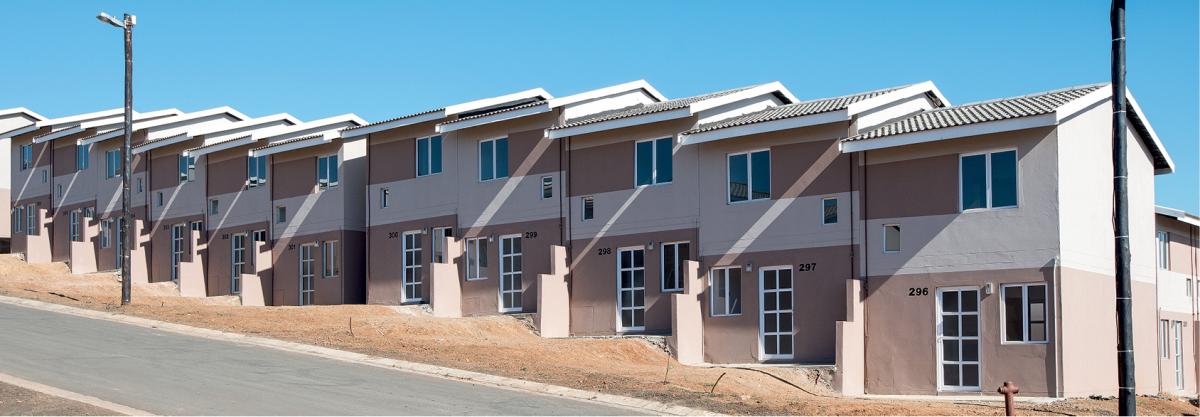 The city has allocated R77.53 million for youth development in the current financial year for initiatives that specifically target youth development across the municipality.
The city has allocated R77.53 million for youth development in the current financial year for initiatives that specifically target youth development across the municipality.
“In some instances, it is for specific areas of scarce skills. In other instances, it is for general up-skilling initiatives.
“These initiatives include the eThekwini Mayoral Student Relief Fund and bursaries; work experience learners or in-service trainees, learnerships/apprenticeships/skills programmes and Community-wide Skills Audit; career development and support; graduate trainees; students, sectoral support and other programmes.”
About 2 968 youth are expected to benefit from these initiatives.
“Last year we launched a Youth Office to take care of youth matters. The Youth Office has a budget allocation of R9.9 million. This money is going to be used for, among others, youth development programmes, the Youth in Business Summit, Africa Youth Month Commemoration and the Matriculants’ Night Vigil,” he said.
Poverty alleviation
The number of people who are benefitting from the City’s soup kitchen project is on the rise and the city has increased the project to meet the demand.
“We currently have 36 soup kitchens but, this financial year, we will increase this to 54. These kitchens have 353 volunteers – made up of 36 drivers and 317 kitchen volunteers.”
The Mayor said the number would be increased to 486.
Rural development and food security
The total budget for agriculture for the City is R27.8 million. It has 85 community gardens which are supported with organic fertiliser, compost, fencing, storage containers, toilets and water infrastructure.
“All community gardens are also supported with tools. In terms of Agriparks, R5 million has been allocated for planning and additional funds will be sourced once the feasibility study has been completed,” added the Mayor.
Creating a quality living environment
The city has allocated R3.4 billion for housing projects to ensure that its citizens have access to quality and decent housing infrastructure.
“The provision of housing, basic and social services is in line with creating sustainable human settlements,” he said.
More support for recycling enterprises
More support for recycling enterprises lebangBudget votes
Environmental Affairs Minister Edna Molewa says the department will intensify its efforts to support recycling enterprises to boost job creation.
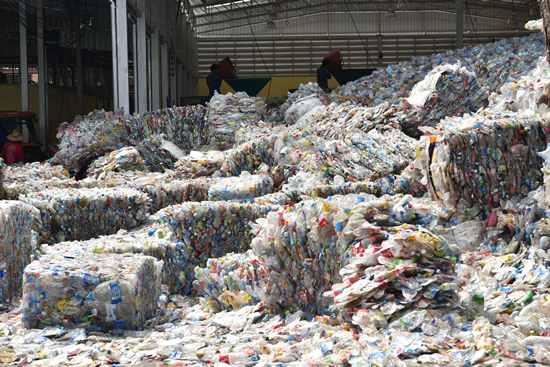 While there have been several recycling initiatives around the country that have received backing from municipalities, opportunities in the sector have not been optimised, said the Minister when she tabled the department’s Budget Vote in Parliament recently.
While there have been several recycling initiatives around the country that have received backing from municipalities, opportunities in the sector have not been optimised, said the Minister when she tabled the department’s Budget Vote in Parliament recently.
“To encourage the scale-up of recycling enterprises in the waste sector, we
launched the Recycling Enterprise Support Programme that will provide the initial capital setup costs for emerging entrepreneurs.
“This year we aim to approve and begin the implementation of the three prioritised Industry Waste Management Plans, namely for the paper and packaging, electrical and electronic and lighting industries respectively,” she said.
In the first call for proposals, the department received over 200 creative and innovative ones.
“We are working with the Departments of Small Business Development and Labour, the Industrial Development Corporation, Public Investment Corporation and other development finance institutions on various financing models to ensure massive scale-up, transformation and job creation,” she said.
The department said the waste sector is one of the most important potentially emerging contributors to the generation of jobs in the green economy.
According to the department, despite a total estimated value of R25 billion to the South African economy, the current rate of waste recycling has not been maximised.
“I am pleased to say that we have established a sound and comprehensive regulatory platform to accelerate the waste recycling economy and waste beneficiation thereby unlocking economic opportunities in the waste sector,” she said.
Plans have been put in place for the management and disbursement of funds through the Waste Management Bureau, which will be fully operationalised this year.
The Recycling and Economic Development Initiative of South Africa (REDISA) Waste Tyre Management Plan, launched in 2012, has been cited internationally as a best practice for waste management.
“As at February 2016, 226 small businesses and 3 112 jobs were created through the REDISA Waste Tyre Management Plan.
“As at February 2016, some 20 935 tonnes of waste tyres were collected and 12 728 tonnes were processed.
“This being a new programme, and the first of its kind, the results remain remarkable. We are currently conducting an annual audit to strengthen the programme.”
Mechanised vehicles for e-waste collectors
The department will hand over more mechanised vehicles to registered e-waste collectors.
This will assist in bringing the country’s estimated 62 147 registered waste pickers into the formal economy and to ensure their safety and protection.
“This year we will continue to hand over mechanised vehicles, as we did last year to some of the registered e-waste collectors. We will do this to alleviate the pain and inconvenience of them pushing heavy manual trolleys and bags all day long.”
As part of the department’s partnership with Coca-Cola (M-Pact Coca-Cola Plant), the department will officially launch the largest plastic bottle recycling plant in Africa in Germiston. The plant is valued at R350 million and is expected to create 1 000 jobs.
Over 130 renewable energy projects authorised
The department has authorised 137 renewable energy applications, which are expected to contribute just over 5 000 megawatts to the power grid.
The department will also be encouraging the uptake of recycling enterprises in the waste sector as government makes a push to bolster waste management in the country.
“In support of renewable energy rollout we have finalised the pre-assessment of the grid expansion corridors. One hundred and thirty seven renewable energy applications have already been authorised, representing 5 719 megawatts,” she said.
SA to increase trade with African countries
SA to increase trade with African countries lebangBudget votes
International Relations and Cooperation Minister Maite Nkoana-Mashabane says South Africa is aiming to boost trade with African states by half a trillion Rand by 2019.
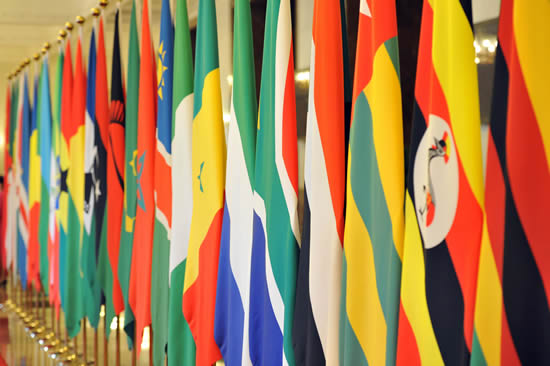 Briefing the media ahead of delivering the department’s Budget Vote recently, the Minister said the increase in trade and investment relations on the African continent as well as Asian and Middle East markets is linked to the growth of South Africa’s diplomatic missions in these areas.
Briefing the media ahead of delivering the department’s Budget Vote recently, the Minister said the increase in trade and investment relations on the African continent as well as Asian and Middle East markets is linked to the growth of South Africa’s diplomatic missions in these areas.
This applies to the country’s traditional trade partners, such as the Americas and Europe.
“With additional economic diplomacy efforts and enhanced national coordination, South African trade with the world can reach R2 trillion by the end of this administration.
“This is without a doubt, an unprecedented trade expansion,” she said.
South Africa’s diplomatic presence on the continent has brought tangible benefits in the form of economic growth and job creation.
The work of the department has increased the country’s presence on the continent, from seven diplomatic missions in 1994 to 47 in 2015.
“Consequently, South Africa’s trade in the continent increased 39 times, from R11.4 billion in 1994 to R385 billion in 2015.
“In 1994, trade with Asia was approximately R760 billion and R116 billion with the Middle East,” the Minister said.
Regional integration within target essential
South Africa’s development is intertwined with that of the Southern Africa region and the African continent at large.
This is why government’s renewed efforts to speed up industrialisation should be viewed within the overall framework of the SADC Industrialisation Strategy and Roadmap, as approved by the SADC Extraordinary Summit in April 2015.
“We seek to industrialise the regional and continental economies to develop our own manufacturing capacity.
“We also seek to radically alter the colonial/post-colonial pattern where Africa was a supplier of raw materials.
“Africa should produce value-added goods for export into the global economy,” the Minister said.
In this way that the country could address the paradox of a rich-resource continent inhabited by a poverty-stricken population and make a decisive break with the past.
“In pursuit of the continental economic integration agenda we witnessed the launch of the SADC Common Market for Eastern and Southern Africa and East African Community Tripartite Free Trade Area (FTA) in June 2015 in Egypt.
“The FTA, which merges 26 countries into a free trade zone with 625 million people and a total gross domestic product of $1.6 trillion, will contribute immensely towards increasing intra-African trade.
“The FTA represents an important milestone towards the conclusion of negotiations for the establishment of the FTA,” she said.
Government’s social assistance changing lives
Government’s social assistance changing lives lebangBudget votes
Of all the learners that passed matric last year, just over 60 percent were recipients of social grants – a sign that government’s social security net is having a positive impact on vulnerable groups.
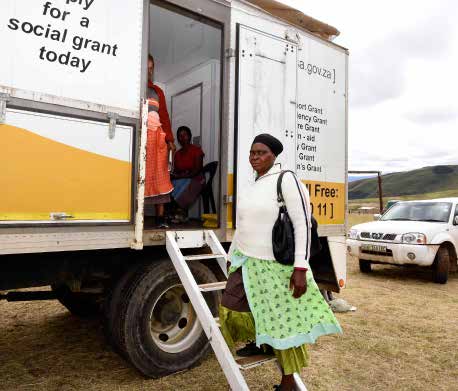 This is according to Social Development Minister Bathabile Dlamini who recently tabled the department’s Budget Vote in Parliament.
This is according to Social Development Minister Bathabile Dlamini who recently tabled the department’s Budget Vote in Parliament.
This success story was testament to the fact that the investment government is making in the lives of the poor and vulnerable learners is showing positive results.
“Children in our Isibindi Programme and the child support grant are performing well in schools.
“Last year, out of the 455 922 who passed their matric examinations, 304 913 learners received a social grant,” she noted.
This is proof that social assistance has proved to be an important tool for human capital investment and the biggest contributor to reducing poverty and inequality.
The Isibindi Model aims to address social challenges among children brought on by the effects of the HIV and AIDS pandemic and other socio-economic challenges.
Through the programme trained community-based child and youth care workers are deployed to identified households to provide much-needed support to orphaned and vulnerable children. These may include assisting them to get ready for school in the morning, meal preparations, assistance with homework, registration for social grants and psychosocial support, to name a few.
In order to ensure that the education of these learners continues without interruption, the department is in negotiation with the National Student Financial Aid Scheme to ensure that learners that had qualified for grants are not subjected to a means test to qualify for financial support to further their studies.
Growing the social security net
Government’s social assistance programme now reaches almost 17 million South Africans.
More than two thirds of all social grant recipients are children who receive the Child Support Grant.
Over three million older persons receive the Old Age Grant while a million people receive the Disability Grant.”
Illegal deductions on social grants under the microscope
The department is dealing with huge challenges as a result of illegal deductions on social grants.
These deductions are eroding the value and impact of social grants in addressing the deep levels of poverty and inequality in the society.
“We have witnessed high levels of unacceptable practice of illegal, immoral and unauthorised deductions of money from all grant types for services ranging from airtime, water, loans and funeral policies.
“We published revised Regulations to the Social Assistance Act for public comment in February this year, which will deal with this practice.
“The department has considered all the comments and made some revisions to the Regulations,” she said.
The department said these revisions to the Act would be published soon.
The Ministerial Task Team on Deductions will continue to monitor these practices and ensure that deductions are ultimately brought to an end.
“The absence of a funeral benefit has opened our social grant beneficiaries to exploitation by private insurance companies. The lack of government action to protect them has led to a very loud outcry by our beneficiaries and various civil society organisations.
“We intend to introduce legislation into Parliament during this current financial year, for the establishment of a funeral benefits fund.”
Women empowerment
The Minister dedicated the speech to tackling struggles and challenges faced by women.
She said communities and families continued to be torn apart by the scourge of violence, abuse and discrimination.
“To address these challenges, we are going to table the Victim Support Services Bill, which will strengthen the protection, care and support services for victims of crime and violence.”
The department’s Command Centre on gender-based violence was an example of using technology to improve public services.
“The Command Centre provides valuable counselling services to address all forms of trauma. Between January 2015 and March 2016, the dedicated staff at the Command Centre attended to more than 55 000 calls.
“Key to our interventions on gender-based violence is the need to empower unemployed women who are trapped in violent relationships and dependent on their abusive partners.
“Working with the National Development Agency, we will provide them with the necessary skills through our capacity building initiatives.
“In the end, every voice counts in ending gender based violence.”
If you are a victim of gender-based violence call: 0800 428 428
R300 billion housing projects
R300 billion housing projects lebangBudget votes
Human Settlements Minister Lindiwe Sisulu has announced that government will rollout major human settlements projects, worth over R300 billion, over the next five years.
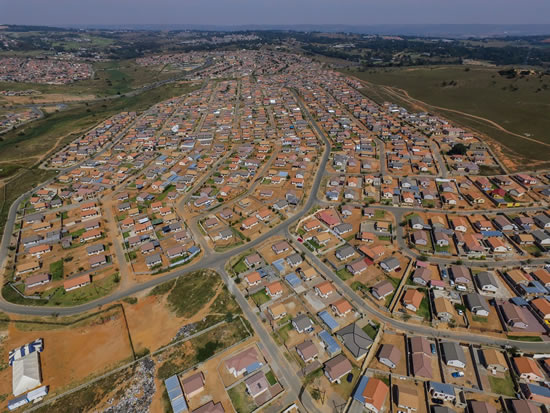 The projects, which are expected to create and sustain thousands of jobs, will speed up the change of apartheid spatial planning, the Minister said when she recently tabled the department’s Budget Vote.
The projects, which are expected to create and sustain thousands of jobs, will speed up the change of apartheid spatial planning, the Minister said when she recently tabled the department’s Budget Vote.
“To fast-track delivery and to accelerate change with regard to apartheid spatial planning we have completed a detailed analysis and shortlisting of mega catalytic projects submitted by the private sector and various spheres of government. These will be rolled out in the next three to five years.
“These projects that are guided by our Breaking New Ground (BNG) policy which we hope will change the face of our cities whilst providing BNG houses, rental, and social housing and serviced sites for the poor and middle class close to places of economic activity.”
The projects are called ‘catalytic’ because they will trigger massive investments by the private sector.
“Our assessment is that our support, which is estimated at R90 billion over five
years, will trigger about R150 billion from the private sector. Hundreds of thousands of jobs will be sustained and thousands more created,” she added.
There were 101 projects, with 94 ready for implementation as soon as the paperwork had been concluded.
All catalytic projects in all nine provinces have the combined value of over R300 billion, creating and sustaining more than 20 000 jobs in the construction sector and other industries.
Government on track to create 1.5 million housing opportunities
“We have committed that we will, between now and 2019, deliver 1.5 million housing opportunities. We remain committed to changing apartheid spatial planning and developing new cities, like Cosmo City, where our people stay close to economic opportunities and social amenities,” the Minister said.
Recently, the department announced that it had delivered 4.3 million houses and subsidies since 1994, which benefitted more than 20 million South Africans.
This consists of 2.8 million completed houses, 986 000 serviced sites and 121 000 social housing units.
It includes more than 360 000 households, who took the opportunity to acquire ownership of their previously state-owned rental properties, 69 000 upgraded community rental units and 6 000 finance-linked subsidies.
Government is estimated to have spent over R500 billion on top structures, bulk services, social and economic amenities to achieve this.
“We can confirm today that after a number of years of decline in our delivery of serviced stands and housing units, for the financial year 2015/2016, we have turned the tide. Our partnership with developers, banks and communities are beginning to bear fruit and we have constructed 153 000 serviced houses, a new record after years of delivery challenges.
“We will progressively formalise informal settlements by providing basic services to restore dignity to our people,” Minister Sisulu said.
A total of 143 756 households in informal settlements have been given access to water and sanitation since the inception of the Medium Term Strategic Framework (From 1 April 2014 to 31 December 2015).
Sithembile Township gets decent houses
Sithembile Township gets decent houses lebangThe KwaZulu-Natal (KZN) provincial government has handed over more than 400 housing units to previously disadvantaged households from Sithembile Township in Glencoe north of KZN.
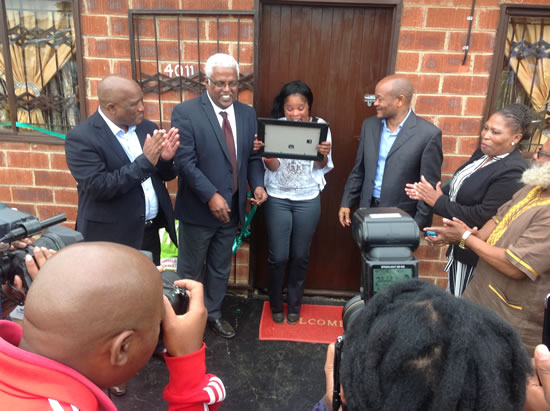 The R35 million housing project was handed over by KZN Premier Senzo Mchunu and MEC for Human Settlements and Public Works Ravigasen Pillay recently.
The R35 million housing project was handed over by KZN Premier Senzo Mchunu and MEC for Human Settlements and Public Works Ravigasen Pillay recently.
The 478 units together with title deeds form part of government’s Comprehensive Rural Development Programme that aims to tackle issues such as under development, food security, unemployment, poverty and other social ills.
One of the Sithembile Township project beneficiary Michelle Goosen told Vukuzenzele that her dream has finally come true.
“I always dreamed of owning a decent house one day. It has been 10 years staying here in the shack. On the rainy days I used to sleep on the water. My grandson when it is raining he would ask me, granny when are we moving out of this shack? I thank the department for such a decent house. Even if I can die today I can rest well knowing that I left my family in a better place,” said Goosen who was so overcome by emotion.
This project didn’t bring houses alone for the people of Sithembile Township but it also created more than 190 jobs for people that were working on project.
Speaking at the handover ceremony MEC Pillay said the handover of the project coincided with the national Department of Human Settlement celebrating the building of 4,3 million houses since 1994.
“In 2014, we also pledged to build an additional 1,5 million houses nationally by 2019 and as KwaZulu-Natal we have already put our shoulder on the delivery wheel to ensure that we realise the target set by Human Settlements Minister Lindiwe Sisulu.
“In this financial year in uMzinyathi district alone, we shall be spending in excess of R136 million during this financial year. Just across town at Sibongile Township in UMzinyathi district, we are building 720 houses as part of R51 million Sibongile Bufferstrip Housing project.
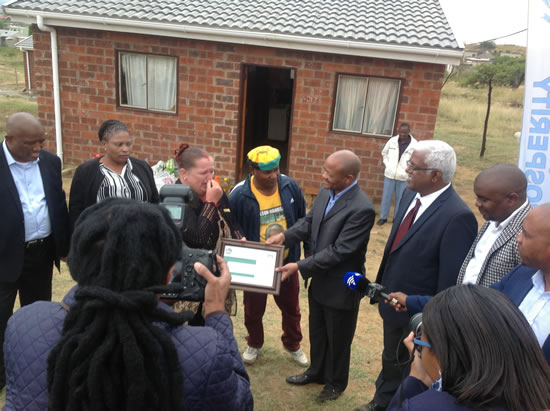 “More than 309 houses have been completed. In addition to that we have slum clearance project called Dlamini,Forestdale Housing Project in Ward 4 and 5.There are also a number of projects in pipeline within Umzinyathi District Municipality,” said MEC Pillay.
“More than 309 houses have been completed. In addition to that we have slum clearance project called Dlamini,Forestdale Housing Project in Ward 4 and 5.There are also a number of projects in pipeline within Umzinyathi District Municipality,” said MEC Pillay.
Premier Mchunu said the title-deeds beneficiaries are in the main, residents who have been renting government housing stock that was built before 1994.
“The handing over of title-deeds forms part of the government aggressive objective of eradicating the huge backlog in affirming security of tenure to many eligible beneficiaries in the province. Together we are really moving South Africa forward,” he said.
The Endumeni local Municipality Mayor Thulani Mahaye said people of Endumeni have seen the development.
“This is government development at its best. We have been writing to the provincial government asking for houses and government answered. All deserving people will definitely get houses. This is phase one of the project phase two is on the pipeline,” he said.
Ford invests billions into SA
Ford invests billions into SA lebangA growing number of companies are showing confidence in South Africa by investing billions of rands into the country.
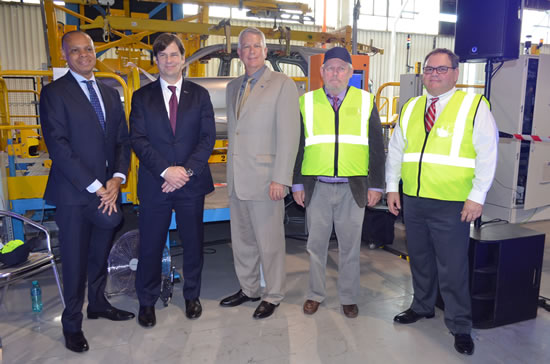 Recently Ford Motor Company of Southern Africa announced a R2,5 billion investment in local production to expand operations in South Africa at its Silverton Assembly Plant, in Pretoria.
Recently Ford Motor Company of Southern Africa announced a R2,5 billion investment in local production to expand operations in South Africa at its Silverton Assembly Plant, in Pretoria.
This will see the production of the all-new Ford Everest, along with the new Ford Ranger that was launched at the end of last year.
Such investments create jobs and contribute to the growth of the country’s economy.
Trade and Industry Minister Rob Davies said the investment not only shows confidence in South Africa but also shows the significance of the Africa Growth and Opportunity Act (AGOA) two-way benefits.
AGOA is a legislation that provides duty-free market access to the US for qualifying sub-Saharan African countries by extending preferences on more than 4 600 products.
“The automotive industry is of significant importance to South Africa. To date we have invested more than R25 billion in the motoring industry and are positive that through this investment we will see more and more vehicles manufactured locally,” said Minister Davies.
Investment to create jobs
Ford Executive Vice President and President of Europe, Jim Farley, said the investment will create approximately 1 200 new jobs at Ford South Africa and within the South African supplier network.
“Our customers love the capability and utility offered by the all-new Ford Everest. By producing the Everest in South Africa, we will be able to make it more readily available, and in a greater variety of models, for customers throughout Sub-Saharan Africa.
“The R2.5 billion investment reaffirms the importance of these markets as part of our growth strategy across the Middle East and Africa. It further reinforces South Africa’s position as a strategic export base for Ford Motor Company,” explained Farley.
The initial production of the Everest at the Silverton plant will commence in the third quarter of 2016, with the first units expected to enter the market in the fourth quarter. South African-produced models will be sold locally and exported to markets across Sub-Saharan Africa.
In 2008, Ford announced plans to build the Ford Ranger at its Silverton Assembly Plant with an investment of R3.4 billion. The investment allowed Ford to transform both of its South African plants into world-class facilities to produce the Ford Ranger and Duratorq TDCi engines for local consumption and export.
Investing in training and development
About 200 people a year will benefit from Ford Motor Company’s new Ford Resource and Engagement Centre.
The centre, which is based at Ford’s vehicle manufacturing plant in Silverton, will the Mamelodi community in particular to find a job or start their own small business in order to sustain themselves.
The investment forms part of a five-year project worth R59.8 million.
Ford also partnered with Future Families, a non-profit organisation established in 2001 with R120 000 in funding from Ford, that has provided assistance to orphans and vulnerable children and people infected and affected by HIV/Aids in South Africa.
Ford Motor Company hopes to change lives and bring a positive change to the community.
“The aim is to address the basic needs of the community and currently that is job training. We want to give people a place where they can come and work with us to break the cycle of poverty,” said Jim Vella president of the Ford Motor Company Fund and Community Services.
The centre is expected to open in October with more centres set to open in other countries.
R3 million upgrade for Middledrift CHC
R3 million upgrade for Middledrift CHC lebangThe Middledrift Community Health Centre (CHC) in the Eastern Cape has received a R3 million upgrade, donated by the Aids Health Foundation (AHF).
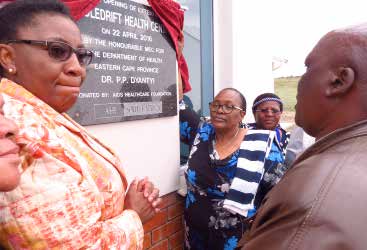 The Middledrift CHC is a 24-hour facility that provides integrated comprehensive primary healthcare services and serves as a referral point to 10 other facilities within the Middledrift cluster. The clinic services 21 villages with a population of about 20 601.
The Middledrift CHC is a 24-hour facility that provides integrated comprehensive primary healthcare services and serves as a referral point to 10 other facilities within the Middledrift cluster. The clinic services 21 villages with a population of about 20 601.
Middledrift is a small town located 90 kilometres north-west of East London.
MEC for the Eastern Cape Department of Health Dr Pumza Dyantyi could not contain her excitement over the new facility.
“This is what government is about, taking services to the people,” she said.
The Middledrift CHC now has a new building with four consulting rooms to increase patient privacy, an office, dispensary, X-ray facility and a playground for children.
When the centre was accredited in 2007 to be an ARV site, there was an increase in the number of patients visiting the centre for treatment. This resulted in space being inadequate to accommodate the influx of patients.
Country Programme Director for South Africa Hilary Thulare explained that when the AHF moved to the Eastern Cape in 2007 to roll-out ARVs the organisation saw first-hand the overcrowding at Middledrift CHC.
“Faced with this reality, a motivation for the extension was made and approved,” said Thulare.
Thulare added that AHF is assisting in Nkonkobe, Mbashe and Mnquma to strengthen the Ideal Clinic’s realisation.
The Ideal Clinic Initiative is a programme that is laying the foundation for the National Health Insurance.
It’s also part of the second implementation of Operation Phakisa, which will be to pilot the health sector’s Ideal Clinic Initiative to improve service delivery in the country’s clinics nationwide.
Operation Phakisa was organised into eight work streams focusing on the different building blocks of an Ideal Clinic capable of delivering good quality health services.
The work streams include service delivery, waiting times, human resources, infrastructure, financial management, supply chain management, scaling up and sustainability and institutional arrangements.
Thulare also committed that the AHF would remain in the province and continue its support for the Department of Health.
MEC Dyantyi thanked the AHF for assisting the provincial health department to bring quality services to the people.
She urged the feeder clinics to play their mandated roles to ensure the CHC is not overburdened and pleaded with the community to protect the building and all other government buildings and assets.
The AHF, which is funded by the United States President's Emergency Plan for Aids Relief, is a Los Angeles-based global non-profit provider of HIV prevention services, testing and healthcare for HIV patients. Dr Dyantyi also handed over two park homes (prefabricated buildings) - one for Lulama Kama Clinic and another for Njwaxa Clinic. The buildings were donated to the department by University Research Company and each of them has three consulting rooms and two toilets.
*Sidumise Madyibi works for the Eastern Cape Department of Health.
Mobile clinics for EC communities
Mobile clinics for EC communities lebangPeople who live in the rural parts of the Eastern Cape will no longer have to struggle to access health services.
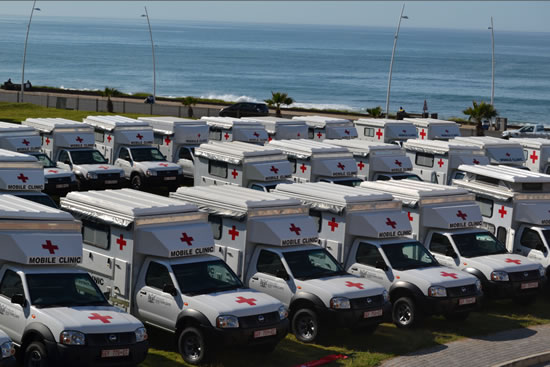 The Eastern Cape health department spent almost R1 billion on 85 mobile clinics, 50 of which were handed over to the various districts by MEC Dr Phumza Dyantyi.
The Eastern Cape health department spent almost R1 billion on 85 mobile clinics, 50 of which were handed over to the various districts by MEC Dr Phumza Dyantyi.
Speaking on the side-lines of the Eastern Cape Healthcare Summit and Excellence Awards in East London recently, MEC Dyantyi said the mobile clinics will be particularly useful for people living in far flung rural areas.
“We are handing over mobile clinics to areas that don’t have clinics. These will go mainly to farming areas such as the Sarah Baartman (formerly Cacadu) district, which is a vast area where people have no access to healthcare and clinics. We want people there to have access to healthcare,” said MEC Dyantyi.
The department will also handover 150 4x4 ambulances this financial year to add onto the over 35 mobile clinics handed over in the last financial year.
“Eastern Cape is a vast province. There are areas that do not have clinics yet and they will be serviced by mobile clinics.
“The increase in mobile clinics means that if staff who were going to the remote areas two times a week will now go there four times. Some areas had not access to healthcare at all and these mobile clinics will bring services closer for the first time,” said MEC Dyantyi.
She added that the mobile clinics would provide the exact same services as normal clinics.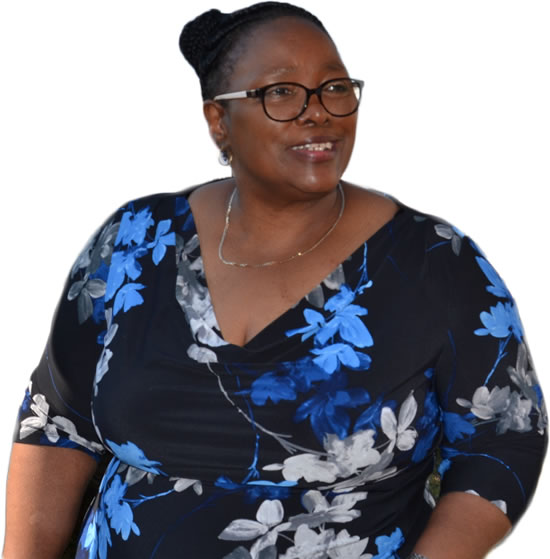
“Our aim is to get services closer to people so that they don’t have to travel long distances.”
Healthcare summit
The healthcare summit looks at multi-faceted approaches to improve access to health services in the province.
It aims to strengthen strategic partnership and promote integrated planning within the Department, with other government departments and with our social partners including non-governmental organisations as well as development and private sector partners.
She said the province has made strides to improve healthcare through the implementation of National Health Insurance pilot projects in the OR Tambo and Alfred Nzo districts.
KwaZondi farms get a boost
KwaZondi farms get a boost lebangA multi-million Rand Cluster Maize and Bean Project in KwaZondi, in Nkandla, north of KwaZulu-Natal, is set to help residents participate in the agricultural economy.
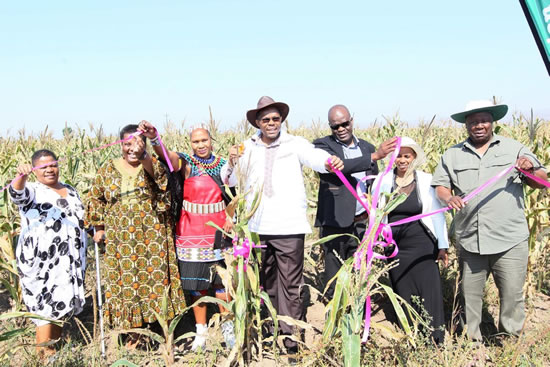 The KwaZondi Cluster will be supported with up to 200 hectares of land, with 150 hectares for bean production and 50 hectares for maize, at a total budget of R2 250 000. Currently, the KwaZondi Cluster has planted 50 hectares of maize at tasseling stage and 81 hectares of beans.
The KwaZondi Cluster will be supported with up to 200 hectares of land, with 150 hectares for bean production and 50 hectares for maize, at a total budget of R2 250 000. Currently, the KwaZondi Cluster has planted 50 hectares of maize at tasseling stage and 81 hectares of beans.
The KwaZondi Cluster is a communal estate under the new strategy for Agrarian Transformation in KwaZulu-Natal.
In the uThungulu District Municipality, the Department of Agriculture and Rural Development identified five communal estates to support for crop production in the 2015/16 financial year - Yanguye Cluster (Soshuka), Ntumeni Vuma Mombeni Ngudwini, Masundwini Mbongolwane, Biyela Progressive and KwaZondi Cluster - as part of government’s Comprehensive Rural Development Programme (CRDP) that aims to tackle issues such as under development, food security, unemployment, poverty and other social ills in rural areas.
Speaking to Vuk’uzenzele, KZN MEC for Agriculture and Rural Development Cyril Xaba said that in KwaZondi small farmers had joined together and joined their plots.
“They formed a cluster or farming cooperative. Instead of growing a variety of different crops and competing with each other, they concentrate on growing one commodity or crop and run their operation as a business. In this cluster it is maize and beans.
“Members in the KwaZondi Cluster, similar to cooperatives in other communal estates, are being treated as business owners in their own right. They are being skilled to become self-empowered, while at the same time getting the support that will allow them to grow quality crops and get access to markets,” said MEC Xaba.
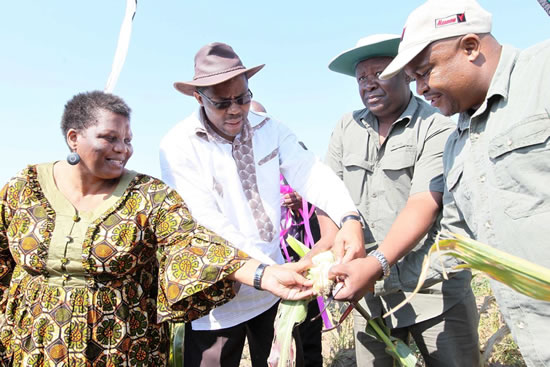 He added that the extent of support the department provided to the cluster would change over time.
He added that the extent of support the department provided to the cluster would change over time.
“In the first year the cluster gets 100 percent funding. By the second year, when the operation is beginning to stand on its feet, funding will be reduced to 50 percent. However, the farmers will not be left on their own. There will be support from the department in terms of empowering them with the latest scientific and business information to continuously improve and grow the farming operation. The department will assist the project to get their maize processed at a mill in Nquthu,” he explained.
The long-term plan is to build silos and a mill in the area so that the farmers have control over the processing, marketing and sales of their own products.
“We have found that there is a ready market for the beans in the area, but as production grows we will work with the farmers to find wider markets,” said the MEC.
Ntombifikile Zungu from the KwaZondi Cluster project said they were happy to receive financial assistance from government.
“We started this project four years ago but we were not able to plant crops on this large plot of land due to financial constraints. We used to hire tractors from other cooperatives but they charged us good money just to work the land. Now, with the help we have gotten from government, we will be able have our own tractors,” she said.
Nkandla Local Municipality Deputy Mayor Thokzani Ndlela said the municipality was very privileged that the KZN Department of Agriculture and Rural Development had chosen Nkandla for such a development.
“The people of Nkandla solely depend on the agricultural economy to provide for their families. Through this project Nkandla will not be the same again. As the project grows, there will be more job opportunities for the people,” he said.
Cape Town’s roads get a facelift
Cape Town’s roads get a facelift lebangA group of women from Heideveld in Cape Town are playing their part in ensuring that the City's roads are safe. They are part of a City of Cape Town programme, known as Women at Work, which seeks to close the gender gap.
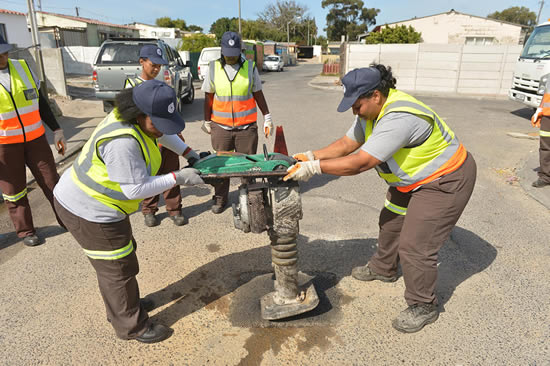 “The purpose of the programme is to empower women in the workplace by providing them with skills for manual labour,” said Cape Town Mayoral Committee Member for Transport Brett Herron.
“The purpose of the programme is to empower women in the workplace by providing them with skills for manual labour,” said Cape Town Mayoral Committee Member for Transport Brett Herron.
He explained that the skills and entrepreneurial abilities the women develop during the 10-month employment period will better equip them to find placement in the permanent job market.
Women at Work is a gender transformation programme within the Transport for Cape Town (TCT) depot. It is implemented by the TCT Training Academy, the Expanded Public Works Programme (EPWP) and selected roads depots across the city.
The women repair and do maintenance work on roads, footways and stormwater infrastructure in Heideveld, Manenberg, Tambo Village, Athlone, Surrey Estate and areas adjacent to Jakes Gerwel Drive.
The team was established in March 2016 and consists of six members, namely Kashiefa Beck, Nomzamo Feni, Joyleen Melton-Gordon, Pumla Mfana, Ilhaam Ely and Akeelah Abrahams.
Becks said she is happy that she has been given a chance in a field that is predominatly male.
“I am very pleased to be given this opportunity by the municipality. I have gained a lot of skills in repairing roads and I am confident they will enable me to find another job,” she added.
Herron said women were generally under-represented in the transport sector. For example, within TCT, women make up only 3.4
percent of those involved in the physical maintenance of roads and stormwater infrastructure.
“I am confident that this project will assist us over time to change perceptions about the type of work that women can do,” he said.
The women who participate in the programme all share a passion for work that benefits communities and improves service delivery.
TCT’s Training Academy assisted management at the Heideveld depot to identify suitable candidates from the local sub-council jobseeker’s database, in line with the City’s EPWP policy.
The candidates underwent a physical assessment to test their ability to perform the type of work required and they were interviewed and evaluated by depot management.
“A total of 24 women will have benefitted through the Women at Work Programme by the end of the financial year on 30 June 2016. We have spent approximately R1 million on the programme. We now aim to establish 10 all-female roads repair teams, accommodating another 60 women in the next financial year,” said Herron.
The 24 women will exit the programme on 30 June 2016 and a new recruitment process to find candidates to replace them, as well as to expand the programme with a further six teams, will begin.
He added that the women are also coached in life and entrepreneurial skills, conflict management and teamwork.
“Even though they will not be employed permanently, they will be empowered to enter the job market, given the technical exposure and the experience they have gained in drafting a quality CV, interview skills and selling their inter-personal skills to add value to the workplace,” Herron explained.
“We are looking forward to seeing these women working on the streets and sidewalks in Heideveld. I hope that this initiative inspires the private sector to get involved, by assisting us to cover indirect costs or by offering them permanent employment opportunities,” he added.
New school for Thekwane South
New school for Thekwane South lebangLearners from Thekwane South, Mpumalanga, no longer have to travel long distances to access educations. For years learners did not have a school in their area and had to attend schools in neighbouring areas. Learners now have access to a brand new school, the Portia Shabangu Secondary School.
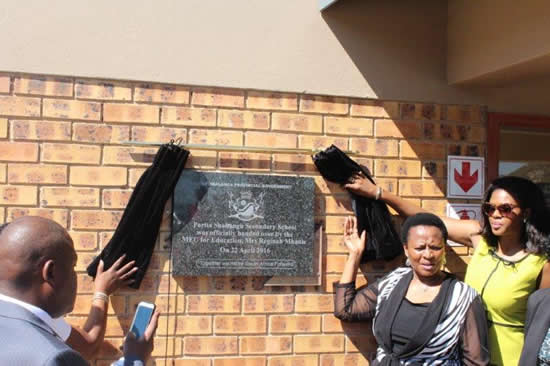 The school, which cost the provincial Department of Education about R45 million to build, can accommodate up to 1 200 learners, has 28 classrooms, an administration block, well-equipped laboratory, library, computer centre, kitchen, 40 toilets and a hall.
The school, which cost the provincial Department of Education about R45 million to build, can accommodate up to 1 200 learners, has 28 classrooms, an administration block, well-equipped laboratory, library, computer centre, kitchen, 40 toilets and a hall.
MEC for Education in Mpumalanga's Reginah Mhaule said the new school was an indication that government cares for the community and values education.
“We thank the provincial government for considering our concerns. Learners will no longer walk long distances and be exposed to harsh weather conditions.”
MEC Mhaule said the school was fully equipped for it to produce the desired results.
“We expect this school to produce a 100 percent pass rate for Grade 12. This will be an indication that learners, parents and teachers really appreciate it.”
Bongi Ngwenya, the school’s principal, said the response from the community had been positive.
“Parents that visit the school are very happy that their children no longer have to walk long distances to neighbouring schools. Other children had to commute via public transport. The new school will enable parents to save on transport costs.”
Ngwenya added that the school currently has 360 learners, but expects the number to grow.
MEC Mhaule appealed to parents to ensure that every member of the community makes an effort to ensure that all children of school-going age attend school every day.
“I would like to urge community members to work with the Department of Education to ensure that learners do not drop out of school,” said MEC Mhaule.
“All parents are requested to heed the call for compulsory education and also ensure a conducive environment for children to do their school work and study at home.”
MEC Mhaule urged the community to ensure that the furniture and property of the school is protected from vandalism and theft.
Eskom Foundation invests in education in the Eastern Cape
Eskom Foundation invests in education in the Eastern Cape lebangThe Eskom Foundation has donated R1.8 million to five schools in the Eastern Cape to help improve Mathematics and Science results in the province.
The province experienced a drop in the 2015 matric results which stood at 56.8 percent – a decline from the 2014 pass rate of 65.4 percent.
Vivian Westphal, Acting Director at the Eastern Cape Department of Education, said following the province’s poor performance during the 2015 matric results there was a need to partner with stakeholders to improve them.
“This is to assist with intervention strategies as mathematics and Science are gateway subjects, particularly for artisan skills. Learners need to do well in Maths and Science as they open many doors to fields like engineering.”
Westphal said the department was grateful for Eskom Foundation’s donation adding that it would make a huge difference to the five schools.
The schools within the Uitenhage District, namely Lungisa Senior Secondary School, Humansdorp Senior Secondary School, Nico Malan Senior Secondary School, Petensie Senior Secondary School and Hankey Senior Secondary School have been chosen to start with the programme.
As part of the donation, Eskom appointed non-governmental organisation (NGO) TracSA, which specialises in supporting maths and science subjects in high schools, to implement the programme.
The NGO will assist with vocation guidance through a mobile laboratory, mentoring and a computer resource that contains programmes that are available to teachers and learners from Grade 10 to 12.
Cecil Ramonotsi, Acting CEO of the Eskom Foundation, said it was part of Eskom’s plan to uplift communities where the company supplies electricity.
“We believe in investing in communities that we operate in to make a difference in people’s lives.
“The Eskom Foundation is very excited to share the good work we are doing with various partners to improve the lives and socio-economic conditions of people in the Eastern Cape,” said Ramonotsi.
He said Eskom was big on corporate social investment and spent about R26.2 million on these programmes in the Eastern Cape during the 2015/16 financial year.
Both the Eastern Cape Department of Education and Eskom have great expectations for the project and are confident that the R1.8 million injection would make a positive impact in the province.
*Pholisa Hashe works for the Eastern Cape Department of Education.
Calling all young graduates to TEACH SA
Calling all young graduates to TEACH SA lebangTEACH South Africa is calling on young graduate leaders who are passionate about developing South Africa to apply to become TEACH Ambassadors in 2017.
 This comes after the Department of Basic Education (DBE) signed a Memorandum of Understanding (MoU) with TEACH South Africa to place TEACH Ambassadors in schools that do not have qualified Mathematics teachers.
This comes after the Department of Basic Education (DBE) signed a Memorandum of Understanding (MoU) with TEACH South Africa to place TEACH Ambassadors in schools that do not have qualified Mathematics teachers.
TEACH South Africa recruits and selects top performing young graduates in the fields of Mathematics, Science and English from universities across the country and places them in disadvantaged and rural schools for a minimum period of two years to become educators.
Through the partnership, TEACH South Africa will provide ongoing support to the TEACH Ambassadors throughout the two years.
“This large placement enables us to achieve a greater impact across the country. We are proud to partner with the DBE to improve the quality of education for children irrespective of their economic background by increasing the pool of quality Mathematics teachers in South Africa.
“School districts in the Eastern Cape, KwaZulu-Natal and Limpopo had the lowest number of students who passed matric in 2015. We applaud Minister Motshekga for addressing this by ensuring quality Mathematics teachers are placed specifically in these areas," said TEACH South Africa Executive Director Richard Masemola.
Minister of Basic Education Angie Motshekga often highlights the importance of offering Mathematics in all schools; however a shortage of qualified Mathematics teachers in the system has been a challenge.
According to Education Management Information Systems (EMIS) lists compiled by the DBE, in 2014 there were over 12 million learners in 24 060 public schools which were taught by just over 390 000 educators.
The MoU formed part of the DBE’s national strategy to address the shortage of Mathematics teachers, as well as to ensure the promotion of Mathematics as a subject necessary for the growth of the South African economy.
Since its inception in 2009, TEACH South Africa has placed 382 TEACH Ambassadors in eight provinces and in 228 schools, impacting about 25 000 learners.
To date, 57 percent of TEACH Ambassadors have remained in the teaching profession, thereby increasing the pool of teachers in these scarce skills.
Masemola said his organisation has recruited and selected graduates from the finest South African universities who are not only top achievers but who are committed to being change agents in South Africa.
“In order to build a prosperous, equitable and competitive South Africa, we must invest in high quality education. This is aligned with the goals of the National Development Plan for education, training and innovation,” says Dr Futhi Mtoba, TEACH South Africa President and Co-Founder.
Minister Motshekga said this initiative was an important step in the right direction.
“We need to continue to work with our partners in civil society to ensure that we begin to see improvements, not only in the numbers of learners who take up Mathematics as a subject, but we also want learners to come back into the system as qualified Mathematics teachers one day.”
“We come from a past where not all learners have had the opportunity to take Mathematics as a subject in school, hence the shortage of qualified Mathematics teachers today,” highlighted Minister Motshekga.
She also added that hard work was needed to ensure that all learners, no matter their socio-economic background, have every opportunity available to take up careers of their choice without any limitations.
For more information about being a TEACH ambassador please contact info@teachsouthafrica.org.za or 011 209 8066 / 082 811 4989
Young entrepreneur breaking new ground
Young entrepreneur breaking new ground Estelle GreeffTwenty-five-year-old Calvin Pokgwadi is an entrepreneur who is out to make a difference.
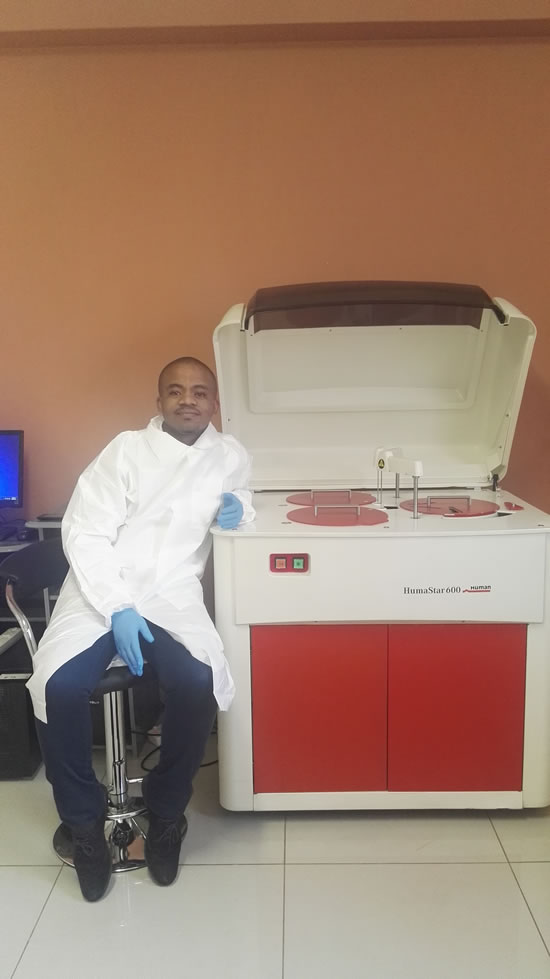 As one of the nine winners of the recent Mpumalanga Youth Entrepreneurship Programme (MYEP), Pretoria resident Pokgwadi is breaking new ground by taking pathology services to rural areas. With the private pathology industry in South Africa dominated by major laboratories, he is showing real courage by trying to claim his own market share.
As one of the nine winners of the recent Mpumalanga Youth Entrepreneurship Programme (MYEP), Pretoria resident Pokgwadi is breaking new ground by taking pathology services to rural areas. With the private pathology industry in South Africa dominated by major laboratories, he is showing real courage by trying to claim his own market share.
Pokgwadi impressed judges at a recent MYEP business bootcamp, held to choose nine entrepreneurs from across three regions in Mpumalanga to benefit from mentoring and R40 000 in seed capital.
MYEP is a partnership between the South African Breweries through its flagship enterprise development programme SAB KickStart, and the Mpumalanga Provincial Government.
Expanding the business
Pokgwadi’s company Stempath (Pty) Ltd has its headquarters in KwaMhlanga but in the year following its establishment in January 2015, had managed to expand the business to four regions, strategically positioning Stempath to cater for people with a lack of access to pathology services.
Stempath provides services to any person who needs pathology services who is referred by doctors for blood work. In some cases no referral is needed for HIV and pregnancy testing for example.
“Stempath provides high-quality, efficient pathology services around Mpumalanga, Limpopo, Gauteng, and the North West,” says Pokgwadi.
While Stempath already employs 13 people, Pokgwadi says the support he has and continues to receive from MYEP is allowing him to explore opportunities in new areas of Mpumalanga.
“MYEP is allowing us to robustly compete in the sector. I am very grateful,” he says.
After matriculating at the age of 15, Pokgwadi completed a Bachelor of Science (MedSci) at the University of Pretoria.
Finding solutions
After working in the field for a few years, he said he was prompted to start Stempath because of the “alarming high mortality rate in remote areas”.
“The inequality of healthcare concerned me and led me to find a solution to deliver pathology services to rural and sub-urban areas. We pride ourselves on taking services to the people. It is my dream to take health technology to new heights and in so doing, better serve the people.”
Market penetration and business development capital are two of the hurdles Pokgwadi has faced, which MYEP is helping him address.
“My family has been supportive of my dreams to be a successful individual from a young age. I am always motivated to make them proud of the sacrifices undertaken to get me where I am today,” he said.
Pokgwadi adds that entrepreneurs need to be supported because they solve problems and better the lives of others through employment.
“Programmes like MYEP are very important. SMMEs need to be given an opportunity to participate in the macro-economy. The future of the next generation lies in the hands of the South African youth.”
Youth development
Lemmy Mdluli, Mpumalanga Economic Development and Tourism’s Chief Director: Integrated Economic Development Services says: “We are working tirelessly to ensure that Mpumalanga youth are given opportunities to advance their businesses and access opportunities that are available through our partnership with the private sector."
Mpho Sadiki, SAB’s Head Sustainable Development and Transformation says its support for youth enterprises is contributing to the bigger picture.
“By supporting youth entrepreneurship in South Africa, SAB is contributing to the country achieving its national economic development priorities. Partnerships like MYEP allow us to assist government in growing sustainable youth businesses,” says Sadiki.
MYEP is supported by the Mpumalanga Youth Chamber of Commerce and Industries SA, the Gert Sibande Technical and Vocational Education and Training College Centre of Entrepreneurship, the Small Enterprise Development Agency, as well as the National Youth Development Agency, who all contribute to developing and supporting youth entrepreneurs in Mpumalanga.
For more information contact: info@myep.co.za or call 063 678 3621
Drop-The-Block to save water
Drop-The-Block to save water Estelle GreeffThe Department of Water and Sanitation has started rolling-out an eco-friendly innovation of placing a block in a toilet tank/cistern to save water.
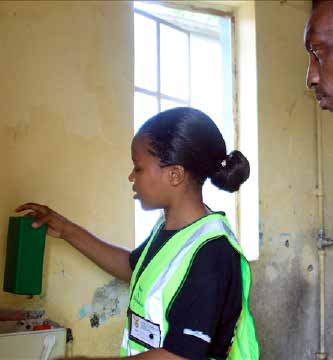 The Drop-The-Block is designed to reduce potable water consumption by one litre per flush. On average, toilet flushing uses up to 31 percent of the overall household consumption, making toilet flushing one of the highest consumers of water in the house.
The Drop-The-Block is designed to reduce potable water consumption by one litre per flush. On average, toilet flushing uses up to 31 percent of the overall household consumption, making toilet flushing one of the highest consumers of water in the house.
The Drop-The-Block team, comprising officials from the department and trainees from the “War on Leaks” programme, kick-started the exercise in Kimberley by visiting households in Ipopeng and Vergenoeg, where they dropped the block.
Once the block is installed, it requires no maintenance and allows the toilet to perform its primary function of waste disposal.
The department said that the water saving exercise would be rolled out to all the five District Municipalities in the Northern Cape.
“The objective is to distribute 300 000 blocks this year across the province, effectively saving 300 000 litres of water per household. In the Northern Cape, a number of priority municipalities have been identified and include among others Sol Plaatjie, Dikgatlong, Joe Morolong, Nama Khoi and Emthanjeni.
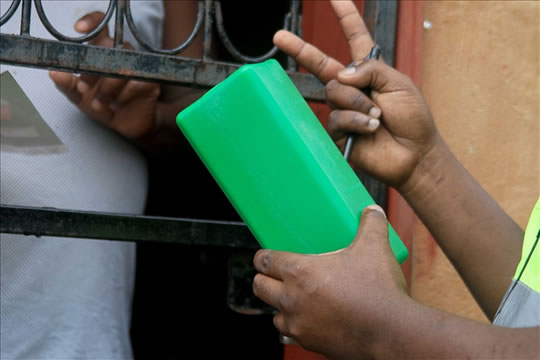 “The municipalities are selected on the basis of households with cisterns bigger than nine litres, communities with extreme cases of drought, municipalities with high water losses, households with high per capita water consumption and indigent communities who cannot afford to pay for water services,” the department said.
“The municipalities are selected on the basis of households with cisterns bigger than nine litres, communities with extreme cases of drought, municipalities with high water losses, households with high per capita water consumption and indigent communities who cannot afford to pay for water services,” the department said.
The water use efficiency directorate in the Department of Water and Sanitation has also identified a number of municipalities throughout the country to benefit from the Drop-The-Block exercise.
In South Africa, the average water usage per household per day is way above the international average, at a staggering 253 litres per day compared with the international average of 173 litres per day.
The department urged residents to cooperate with the War on Leaks and Drop-The-Block officials.
Jobs: Justice and Constitutional Development Jun 2016 - 1
Jobs: Justice and Constitutional Development Jun 2016 - 1 Estelle GreeffFamily Advocate LP7-LP8 (2 posts) (This post is a re-advertisement; candidates who previously applied are encouraged to re-apply)
Reference: 083/15/NC
Reference: 023/16/NC CENTRE: OFFICE OF THE FAMILY ADVOCATE: KIMBERLEY
Package: R637 860 – R1 058 196 per annum. (Salary will be in accordance with OSD determination). The successful candidate will be required to sign a performance agreement.
Requirements: An LLB Degree or recognized 4 year legal qualification; Admitted as an Advocate or qualifies to be admitted as an Advocate of the High Court; The right of appearance in the High Court of South Africa; At least 5 years appropriate post qualification, litigation experience; A valid driver’s licence; Setswana will be an added advantage.
Enquiries: Adv P Molokwane 053 833 1019
Deputy Director: Technology Architecture (Contract Appointment Ending 30 September 2018)
Reference: 16/119/ISM
Package: R612 822 – R721 878 per annum (All inclusive). The successful candidate will be required to sign a performance agreement.
Requirements: A National Diploma/Degree in Information Systems/Technology/Computer science or equivalent qualification NQF 6; Three years experience within the information Systems, LAN and WAN environment, with specific focus on: Server Virtualization Storage Infrastructure IT networking, Database and user support; At least two years’ experience as a Technical/Technology/Solutions architect; Knowledge of TOGAF framework (Certification will be an added advantage); Experience working with Microsoft platforms and technologies (Certification as Microsoft professional ie. MCSE, MCITP, etc will be added advantage); Knowledge of EA practices, modeling EA Frameworks and Architecture disciplines; Knowledge of international standards; Knowledge of IT system design, software and product hardware evaluation; Experience of hardware and LAN/WAN environment.
Enquiries: Ms S Bezuidenhout 012 315 1090
Assistant Director: Labour Relations (This post is a re-advertisement; candidates who previously applied are encouraged to re-apply)
Reference: 16/65/FS
Salary: R311 784 – R376 626. The successful candidate will be required to sign a performance agreement.
Requirements: A 3 year Degree/ National Diploma in Labour Law / Labour Relations or equivalent relevant qualification; At least 3 years relevant experience in a supervisory / junior management position in the Labour Relations environment; A valid driver’s licence.
Enquiries: Ms NN Sithole 051 407 1800
Maintenance Officer MR1 - MR5 (4 posts) (These posts are a re-advertisement; candidates who previously applied are encouraged to re-apply)
Contract period: Until 31 March 2017
Reference: 16/66/FS;
Centre: Magistrate’s Office, Welkom (2), Bethlehem (1) and Ladybrand (1)
Salary: R162 726 + 37% in lieu of benefits per annum (Salary will be in accordance with OSD determination). The successful candidate will be required to sign a performance agreement.
Requirements: An appropriate 4 year recognized legal qualification (Proc or LLB); Extensive knowledge of the maintenance system; Proficiency at least two official languages; Understanding of all services and procedures in the area of maintenance and other areas of family law; A valid driver’s licence.
Enquiries: Ms N Dywili 051 407 1800
Closing date: 6 June 2016
Note:
Interested applicants may visit the following website: www.justice.gov.za or www.dpsa.gov.za to view the full job specification of the above positions. Applications must be submitted on Form Z83, obtainable from any Public Service Department or on the internet at www.gov.za. A Z83 form & CV must be accompanied by original certified copies of qualifications and identity document and a driver’s licence where necessary. A SAQA evaluation report must accompany foreign qualifications. Applications that do not comply with the above mentioned requirements will not be considered.
All shortlisted candidates for SMS posts will be subjected to a technical exercise that intends to test relevant technical elements of the job, the logistics of which will be communicated. Following the interview and technical exercise, the selection panel will recommend candidates to attend a generic managerial competency assessment (in compliance with the DPSA Directive on the implementation of competency based assessments). Candidate will complete a financial disclosure form and also be required to undergo a security clearance. If the candidate is applying for an OSD post, certificates of service must be attached to the CV.
The DOJ&CD is an equal opportunity employer. In the filling of vacant posts the objectives of section 195 (1) (i) of the Constitution of South Africa, 1996 (Act No: 108 of 1996), the Employment Equity imperatives as defined by the Employment Equity Act, 1998 (Act No: 55 of 1998) and relevant Human Resources policies of the Department will be taken into consideration. Reasonable accommodation shall be applied for People with Disabilities including where drivers licence is a requirement. Shortlisted candidates will be subjected to a personnel vetting process. Correspondence will be limited to short-listed candidates only. If you do not hear from us within 3 months of this advertisement, please accept that your application has been unsuccessful. The department reserves the right not to fill these positions. Women and people with disabilities are encouraged to apply and preference will be given to the EE Target.
Tel: 012 315 1111 Private Bag X81, Pretoria, 0001 Momentum Centre, 329 Pretorius Street, Pretoria, www.justice.gov.za Twitter @dojcd_ZA Facebook: at DOJCD
DAFF-China Scholarship Programme 2017
DAFF-China Scholarship Programme 2017 Estelle GreeffThe Department of Agriculture, Forestry and Fisheries (DAFF) in partnership with the Nanjing Agricultural University (NAU), are offering a fully-funded postgraduate scholarship to the People’s Republic of China.
The aim of the scholarship is to address the shortage of critical skills by inviting applications from eligible individuals in the Professional Masters Program who wish to further their studies and pursue careers in Fishery Science to apply for this 2017 DAFF-China Scholarship programme.
Objectives
The purpose of the scholarship is to promote the following:
- Profound and professional knowledge of basic theories in Fishery Science;
- Familiarity with the World Fishery Development and comprehensive knowledge structure;
- A spirit of innovation and practice;
- Capability of independently engaging in fishery technical and rural developing tasks;
- Innovative thinking;
- Ability to carry out independent research in fisheries;
- A rigorous style of study, good morality;
- Commitment to promote the development of fisheries and agricultural industries through strengthening cooperation between South Africa and China.
Conditions of the scholarship
1. Requirements for applicants
- Applicants should be from a fishery-related administration or extension department, university, college, institute, or business etc.
- In good health;
- Possess a Bachelor’s Degree (or equivalent) in Fishery, Biology, Environment, and related majors;
- English as a 1st language or ideally an English proficiency test score (e.g. IELES, TOEFL, etc.);
- Under the age of 40;
- Must be a South African citizen;
Individuals with requisite credentials from previously disadvantaged groups will be given first preference.
2. The scholarship will cover the following:
Those who are admitted will get the full scholarship provided by the Chinese Government and issued through China Scholarship Council (CSC).
Included in the scholarship (subject to the adjustment of the Government) will be:
- Return economy air ticket to the People’s Republic of China
- Tuition
- Monthly maintenance stipend
- Sickness and accident insurance
- Books
- Accommodation (university residence)
- Meals
3. Documentation to be submitted to DAFF For the Scholarship programme
The following documentation is needed to apply for the scholarship:
- Completed application form;
- Physical Examination Record for foreigners and Blood Test Report;
- According to China’s quarantine regulations foreign students who wish to study in China for longer than 6 months, should submit copies of their Physical Examination Record or Foreigner and Blood Test Report in duplicates;
- Applicants’ medical examinations should cover all the items in the Physical Examination Record and should be conducted at a public hospital with reliable testing facilities;
- Incomplete records or those without a sealed photograph of the applicant will be considered invalid;
- Since a completed physical record is effective only for six months from the date of examination, it is the applicant’s responsibility to decide when the next physical examination will be done;
- Upon enrolment, the applicants are expected to produce original copies of their medical records and blood test reports when they arrive in China;
- Applicants will be held responsible for any consequences which might occur as a result of submitting false medical results;
- Those without original copies or incomplete medical forms will be expected to take the medical examination again at their own expense.
- Highest diploma (Bachelor’s or equivalent) and academic record/transcript;
- Thesis Abstract, published research paper or research proposal (if any);
- Two recommendation letters (one should be from your current employer);
- A study or research plan written in English with more than 500 words;
- Copies of English language proficiency test results (for applicants whose native language or medium of instruction is not English);
- Recently updated Curriculum Vitae;
- Certified copy of passport.
Interested individuals should hand deliver their applications on or the 10 JUNE 2016 to:
Submission of application forms
Mr Nakiseni Ndivheni
Directorate: Sector Education and Training
Agriculture Place, 20 Steve Biko Rd (Old Beatrix Str), V Block, Ground floor, Office number 10, Pretoria, 0001
Tel: 012 319 7159
Fax: 012 319 6851
E-mail: NtakiseniN@daff.gov.za
Enquiries
Ms Jacky Smit
Directorate: Sector Education and Training
Agriculture Place, 20 Steve Biko Rd (Old Beatrix Str), (V Block, First Floor, Office number 16), Pretoria, 0001
Tel: 012 319 7019
Fax: 012 319 6851
E-mail: JackyS@daff.gov.za
Jobs: Justice and Constitutional Development Jun 2016 - 2
Jobs: Justice and Constitutional Development Jun 2016 - 2 Estelle GreeffChief Director: Infrastructure Management (Contract Appointment Ending September 2018) (Readvertisment)
Reference: 16/130/ISM
Package: R1 042 500 - R1 246 449 per annum (All inclusive) The successful candidate will be required to sign a performance agreement.
Requirements: An undergraduate qualification (NQF level 7) in Information Systems/Technology/Computer Science as recognized by SAQA; 5 years management experience in the senior managerial level role in ICT Infrastructure; 5 years experience in the ICT Data Centers, Networks, End User Computing & Security (Architecture, Operations & Projects) will be an added advantage; A relevant enterprise architecture certificate and experience will be an added advantage.
Enquiries: Ms S Bezuidenhout Tel: 012 315 1090
Deputy Director: Human Resources
Reference: 48/16/LMP
Package: R612 822 - R721 878 per annum (All inclusive). The successful candidate will be required to sign a performance agreement.
Requirements: Three years Bachelor 's Degree in Administration or equivalent qualification (NQF level 6); Three years' relevant experience in Human Resource at Management level; A valid driver's licence; Knowledge/skills in: Recruitment practices; Labour relations; Compensation of Performance incentives; Sound knowledge of Public Service Act, Persal and relevant prescripts.
Enquiries: Ms OM Langa Tel: 015 287 2006
Court Manager
Reference: 110/16/WC centre: Magistrates Offices George
Reference: 111/16/WC centre: Magistrates Offices Worcester
Salary: R361 659 - R426 009 per annum. The successful candidate will be required to sign a performance agreement
Requirements: A 3 year qualification in Administration (NQF level 6) and /or a National Diploma in Service Management (NQF level 5) plus the module in Case Flow Management or equivalent qualification; At least 3 years' managerial or supervisory experience; Knowledge and experience in office and district administration; Knowledge of the financial management and PFMA; Experience in managing Trust (Third Party Funds) and Vote Account; Experience in the Court environment will be an added advantage; A valid driver's licence;
Enquiries: Mr M Cerfonteyn Tel: 044 802 5800 (George) and Mr R Myburg Tel: 023 342 2325 (Worcester)
Editor
Reference: 16/130/LD
Salary: R311 784 - R367 254 per annum. The successful candidate will be required to sign a performance agreement.
Requirements: Appropriate Degree in English/ Publishing/Journalism/ Communication; At least 5 years editorial experience; Experience in the legal field or an academic field will be an advantage; Knowledge of the Public Service environment.
Enquiries: Ms P. Leshilo Tel: 012 357 8240
Cluster Manager: Court Interpreting
Reference: 2016/103/GP
Salary: R311 784 - R367 254 per annum. The successful candidate will be required to sign a performance agreement.
Requirements: NOF level 4/ Grade 12 plus National Diploma in Legal Interpreting or any other relevant tertiary qualification at NQF level 5; Proficiency in English and two or more indigenous languages; Six (6) years practical experience as a Court Interpreter with minimum three years supervisory experience; A valid driver's licence.
Enquiries: Mr T Modise Tel: 011 332 9000
Assistant Director (Financial Operations Manager)
Reference: 2016/44/MP
Salary: R311 784 - R367 254 per annum. The successful candidate will be required to sign a performance agreement.
Requirements: An appropriate three year financial management Degree/ National Diploma or equivalent qualification and applicable experience in the finance field. At least three years' experience in the financial field; Knowledge of the BAS accounting software, JDAS, PERSAL, PFMA, Treasury Regulations, Budgets and Procurement; A thorough understanding and knowledge of the Department's various branches will be an advantage; A valid drivers' licence.
Enquiries: Ms CNT Shakwane Tel: 013 753 9300
Maintenance Officer: MR1- MRS
Reference: 16/69/FS
Salary: R162 726 - R762 630 per annum. (Salary will be determined in accordance with OSD determination). The successful candidate will be required to sign a performance agreement.
Requirements: An appropriate 4 year recognized legal qualification (Proc or LLB); Extensive knowledge of the maintenance system; Proficiency in at least two official languages; Understanding of all services and procedures in the area of maintenance and other areas of family law, A valid driver's license.
Enquiries: Ms N Dywili Tel: 051 4071800
Closing date is 13 June 2016
Interested applicants may visit the following website: www.justice.gov.za (link is external) or www.dpsa.gov.za (link is external) to view the full job specification of the above positions. Applications must be submitted on Form Z83, obtainable from any Public Service Department or on the internet at www.gov.za (link is external). A Z83 form & CV must be accompanied by original certified copies of qualifications and identity document and a driver’s licence where necessary. A SAQA evaluation report must accompany foreign qualifications. Applications that do not comply with the above mentioned requirements will not be considered.
All shortlisted candidates for SMS posts will be subjected to a technical exercise that intends to test relevant technical elements of the job, the logistics of which will be communicated. Following the interview and technical exercise, the selection panel will recommend candidates to attend a generic managerial competency assessment (in compliance with the DPSA Directive on the implementation of competency based assessments). Candidate will complete a financial disclosure form and also be required to undergo a security clearance. If the candidate is applying for an OSD post, certificates of service must be attached to the CV.
The DOJ&CD is an equal opportunity employer. In the filling of vacant posts the objectives of section 195 (1) (i) of the Constitution of South Africa, 1996 (Act No: 108 of 1996), the Employment Equity imperatives as defined by the Employment Equity Act, 1998 (Act No: 55 of 1998) and relevant Human Resources policies of the Department will be taken into consideration. Reasonable accommodation shall be applied for People with Disabilities including where drivers licence is a requirement. Shortlisted candidates will be subjected to a personnel vetting process. Correspondence will be limited to short-listed candidates only. If you do not hear from us within 3 months of this advertisement, please accept that your application has been unsuccessful. The department reserves the right not to fill these positions. Women and people with disabilities are encouraged to apply and preference will be given to the EE Target.
Tel: 012 315 1111 Private Bag X81, Pretoria, 0001 Momentum Centre, 329 Pretorius Street, Pretoria, www.justice.gov.za (link is external) Twitter @dojcd_ZA Facebook: at DOJCD
Sport transformation a top priority
Sport transformation a top priority Estelle GreeffSport, arts, culture
Sport and Recreation Minister Fikile Mbalula says there is no turning back on transformation following his announcement to impose penalties on sports federations that have failed to meet transformation targets.
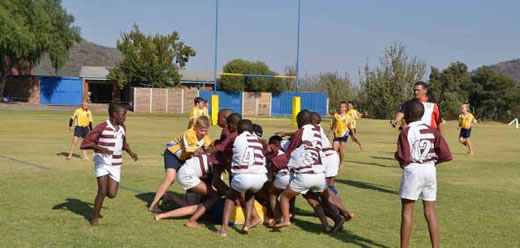 The Minister said this when he briefed the media after tabling the department’s Budget Vote in Parliament recently.
The Minister said this when he briefed the media after tabling the department’s Budget Vote in Parliament recently.
On 25 April, Minister Mbalula released the Eminent Persons Group report on Transformation in Sport in South Africa, and also announced the Transformation Barometer.
“For us there is no turning back on transformation and [we are] forging ahead with the penalties imposed on rugby, athletics, cricket and netball based on their failure to meet their own set targets.
“I have signed memoranda of agreements with each of the aforementioned federations and I expect them to act on their commitments,” he said.
The Minister said he would be signing memoranda of agreements with the 14 federations that were part of the 2015/16 transformation audit report.
He expects federations to also set their own targets against which the department will measure their performance on an annual basis.
Minister sets target for Rio Olympics
The Minister said, meanwhile, that the South African Sports Confederation and Olympic Committee (SASCOC) would prepare Team South Africa, in partnership with national federations, to participate in the 2016 Rio Olympic and Paralympic games which will start in August.
He said SASCOC would receive its allocation of R8 million, as well as an additional allocation for advanced preparation for targeted athletes who have good medal potential in Brazil.
Minister Mbalula said the additional allocation would also be based on the assessments of the training and preparatory needs over and above the support provided through the various sporting federations for final preparations.
“As government, we are mobilising society and resources to ensure that our athletes fly the South African flag high and collect medals that will put smiles on the faces of this sport-loving nation.
“In this regard, we have set a target of eight medals for SASCOC in the 2016 edition of the Olympic Games, up from the medal tally achieved in London,” he said.
New programmes to bolster sports development
The Minister said in the year ahead, the department would introduce a programme called Sports Buzz.
The programme will see 12-retro fitted
kombis being dispatched to all provinces with the intention of promoting sport, active and healthy lifestyles.
“I, together with traditional leaders of our country, launched the Rural Sport Development Programme in Umtata in the Eastern Cape.
“This programme will be a link and feeder to our structured Sport Development Programme in rural areas and farming communities of our country.
“We are building a solid pipeline by growing and nurturing athletes who demonstrate potential and talent in the deep rural areas. We are doing for ourselves. Siyaqhuba!”
Participating in the department’s Budget Vote debate in Parliament, Deputy Sport and Recreation Minister Gert Oosthuizen said government would continue to create opportunities that will contribute towards uniting people across race, class or gender
The Deputy Minister said unification would be pursued through existing social cohesion campaigns such as UNITE.
He said this would be done in partnership with the Department of Arts and Culture and other social partners.
“In our view, the Nelson Mandela Sports and Culture Day contributes towards a meaningful non-racial cohesion programme, rallying all South Africans,” he said.
In the coming year, the department was committed to delivering several programmes, namely:
- To have 1.3 million people actively participating in organised sport and active recreation events, thereby sharing common spaces;
- Implementing five Sport and Recreation promotion campaigns and events;
- Providing 2 500 schools, hubs and clubs with equipment and/or attire to assist with transformation;
- Sixty Sport and Recreation bodies receiving financial and non-financial support in an effort to assist them in meeting their transformation targets;
- Having 7 500 participants in the National School Sport Championships;
- To have 3 400 athletes supported by the Sports Academies;
- To have 80 athletes supported through the Scientific Support Programme.
Through these actions, the department is promoting full and equal access to quality sport and recreation for all citizens.
Development programme to uplift rural sport
Development programme to uplift rural sport Estelle GreeffSport, arts, culture
The newly launched Rural Sport Development Programme, launched by the Department of Sport and Recreation, is expected to develop sport in rural areas and provide a platform for more talented sportsmen and women to showcase their talent.
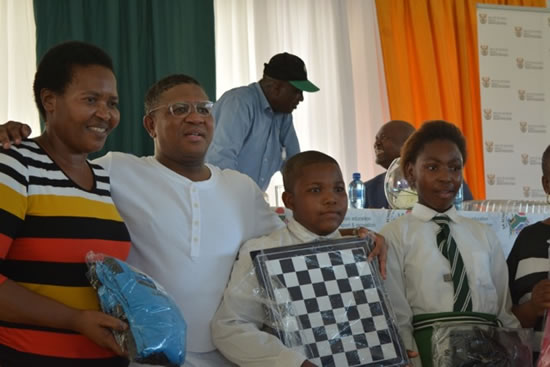 The Rural Sport Development Programme comes from the department’s National Sport and Recreation Plan, which highlights the need to develop and invest in previously disadvantaged communities, especially rural communities.
The Rural Sport Development Programme comes from the department’s National Sport and Recreation Plan, which highlights the need to develop and invest in previously disadvantaged communities, especially rural communities.
The development programme will focus on five sporting codes, namely netball, football, rugby, cricket and athletics.
Minister of Sport and Recreation Fikile Mbalula said the development programme is expected to assist in developing rural sports and fast-track transformation.
“Transformation is a bottom up approach which means we must invest in the development of talent in township and rural communities.
“By doing this we amplify work already done by rural communities because they are actively involved in playing sport already.”
He added that it is government’s responsibility to equip rural communities so they are not left out on the basis of where they come from.
“Ours is to equip these young people with sport facilities so they are not disadvantaged because of the communities they are born in,” Minister Mbalula said.
The programme will not be implemented in isolation but with the existing School Sport Programme. The two programmes will be rolled out nationally in all rural provinces, such as the Eastern Cape, Limpopo, KwaZulu-Natal, Mpumalanga and Northern Cape.
The Minister added that the Rural Sport Development Programme will be implemented with the involvement of the House of Traditional Leaders, as they are key in the governance of rural communities, and the Department of Basic Education, which governs schools.
Recently, Minister Mbalula conducted Sport Outreach Programmes in Port Elizabeth and Uitenhage as part of reaching out to communities and schools.
During the outreach, 25 schools received sporting equipment as part of department’s drive to assist schools to take an interest in sports.
